Acoustic Cover Just Can't Get Enough Black
When you hear the lyrics, "I fought the law and the law won," which artist comes to mind? If you're musically inclined, a certain English punk-rock band likely pops into your head. And the crunchy guitar riffs and raw power of "American Woman" probably conjure the image of a flashy rock star and his Flying V guitar. But get this: neither tune was actually written by the artist you associate the song with. Both are just masterful takes on someone else's work. A great cover has that kind of power. To test your knowledge of their origins and to help fill out your playlist, we've gathered the 65 best cover songs of all time. Be honest, how many did you think were the real deal? For more music facts, check out 20 Songs You Totally Misunderstood, Explained.
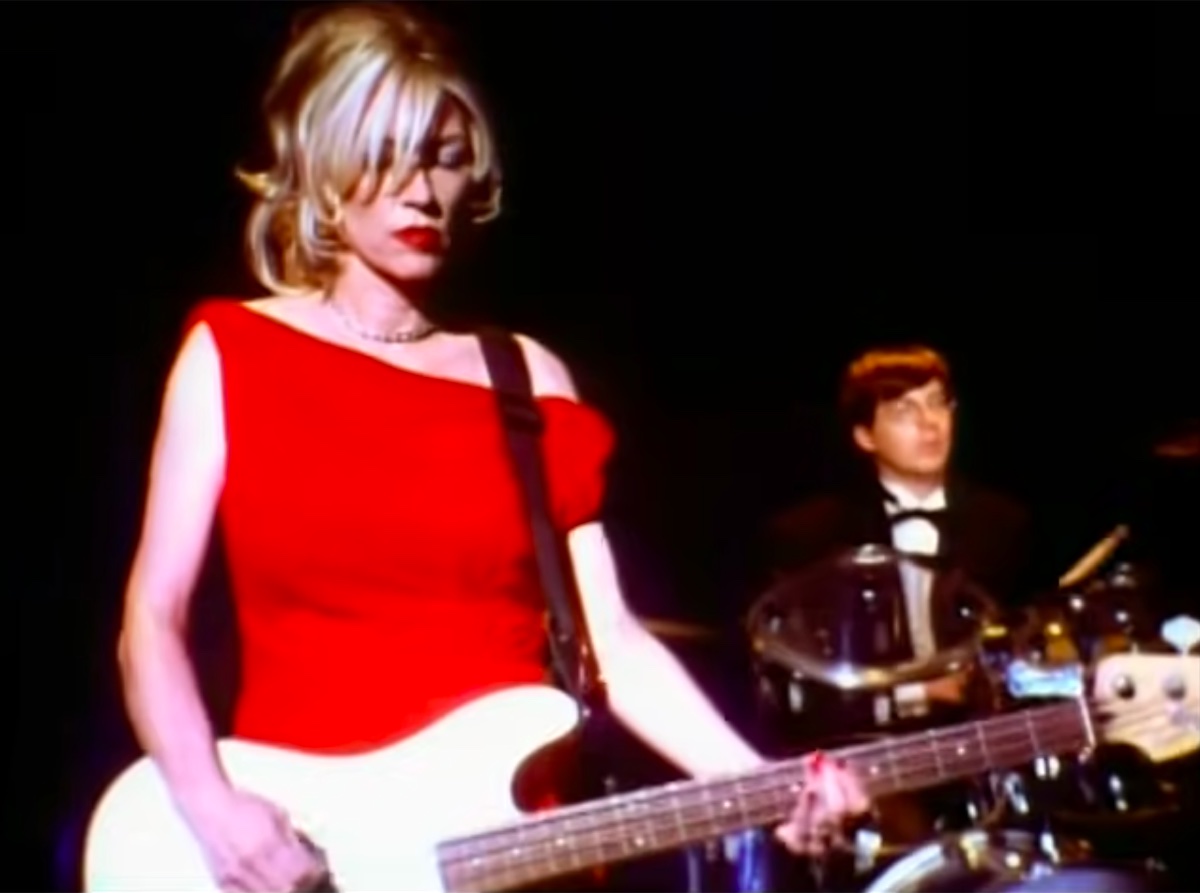
Karen and Richard Carpenter's monster hit was written by rock legend Leon Russell and Bonnie Bramlett (of 1960s rock/soul duo Delaney & Bonnie) for Rita Coolidge. Others have covered this yearning ballad, though none rise to the level of Thurston Moore's faithful homage to Karen Carpenter. It reveals an uncharacteristically sensitive side of the caustic and arch New York City rock band.
Listen here
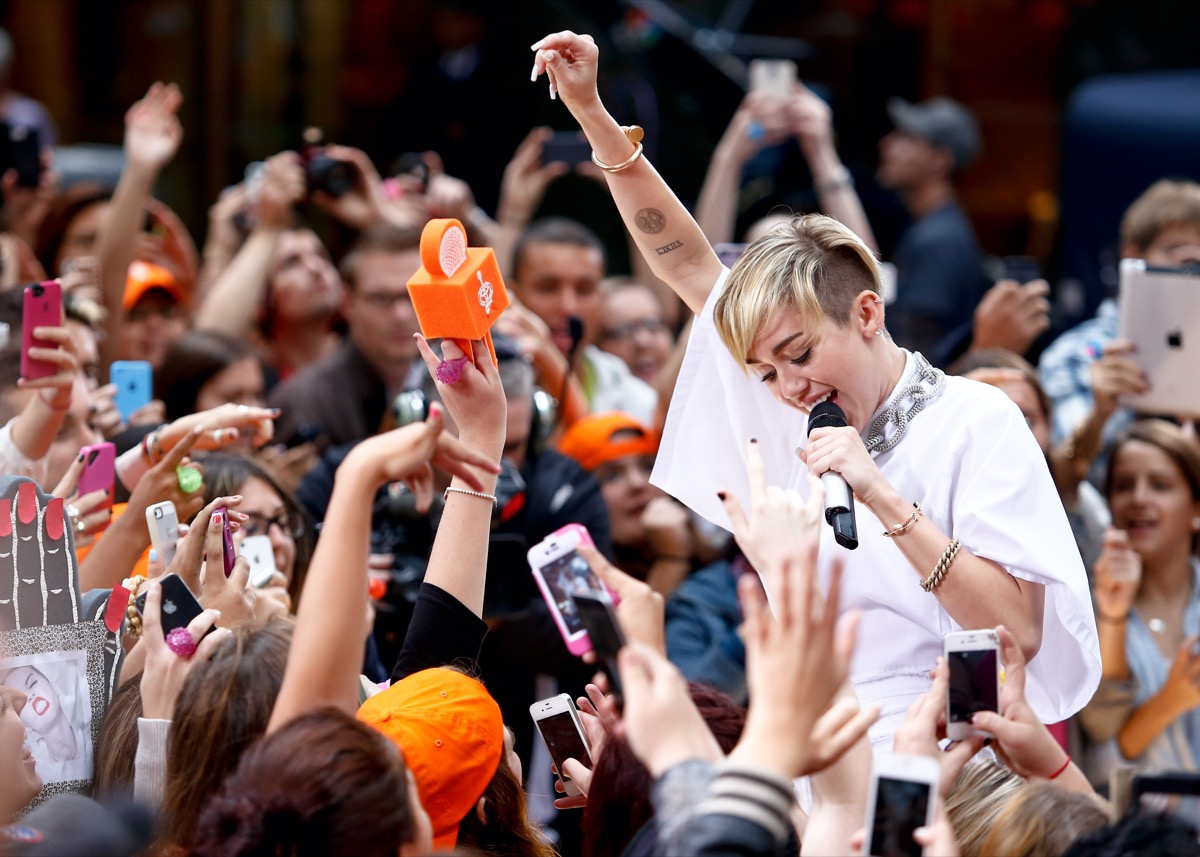
Only Miley Cyrus' sensuously husky voice could improve on the popular Stevie Nicks original. Cyrus has said that song has deep emotional resonance for her, and she does it justice without attempting to bend it to her will—a testament to her confidence and genuine talent.
Listen here
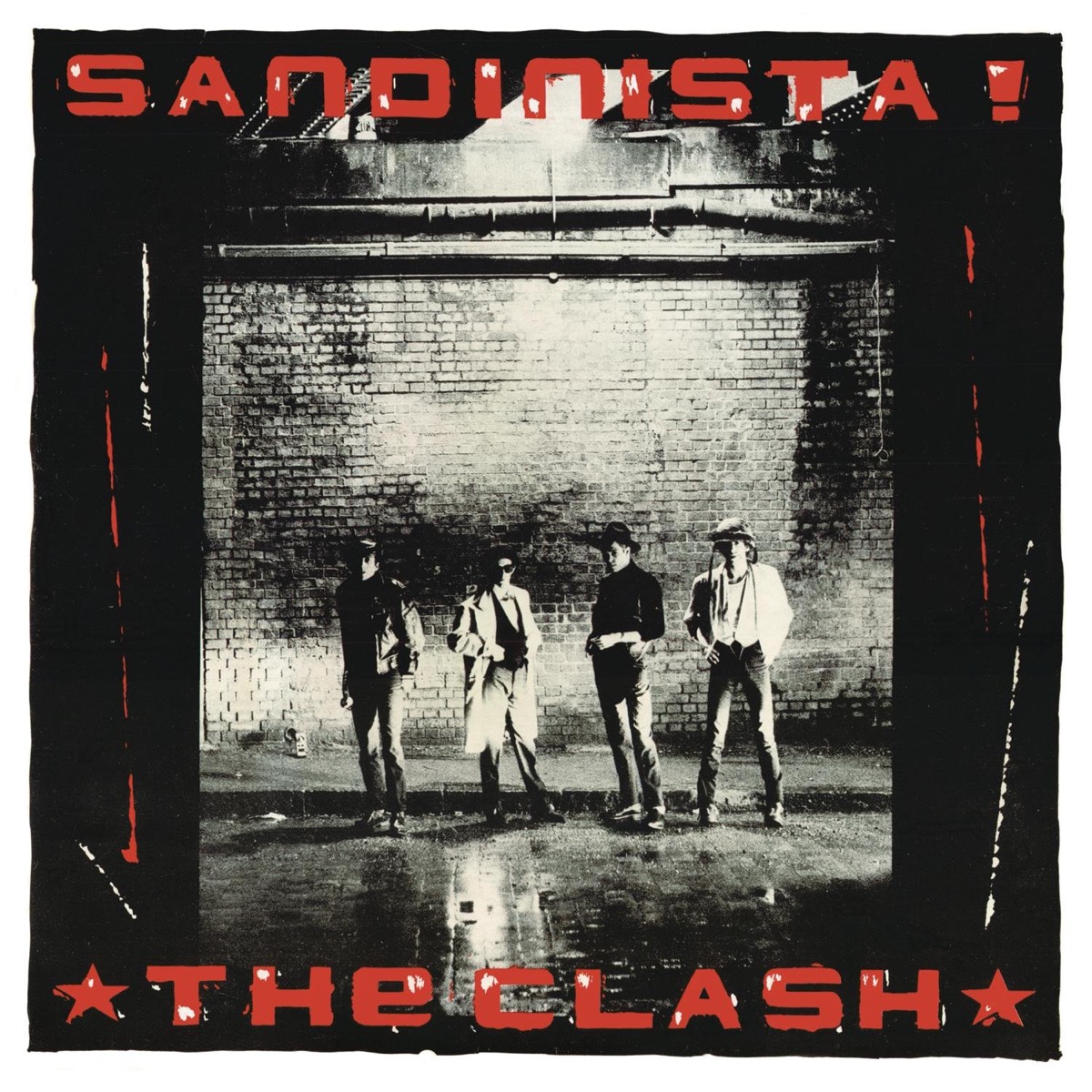
Well, I'm a-runnin'
Police on my back
I've been hidin'
Police on my back
There was a shootin'
Police on my back
And the victim
Well, he won't come back
And so goes the first verse of the fugitive ballad penned by Eddie Grant of the mid-'60s British pop group The Equals. It features a slower, Jamaican-style cadence, in contrast to the urgent, hard-driving Clash version. Critics considered it among the most Clash-like song on the albumSandinista!
Listen here
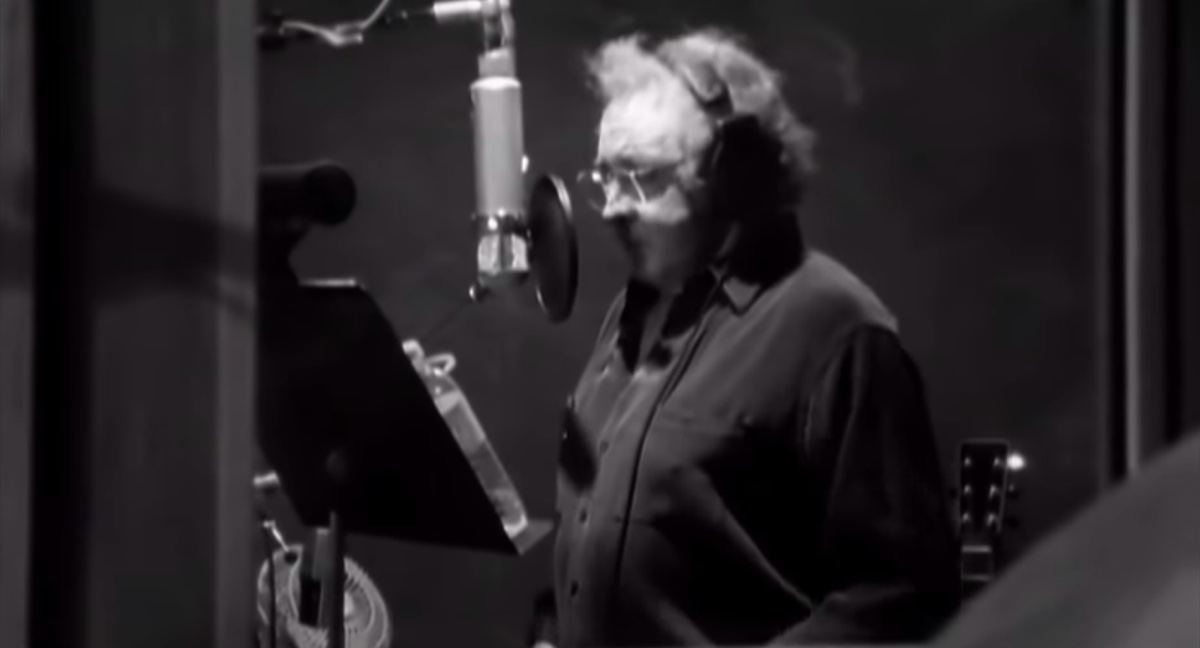
In the latter years of his illustrious life, The Man in Black did many reinterpretations of contemporary artists, a bold move courtesy of famed producer Rick Rubin. At first, neither Johnny Cash nor Chris Cornell of Soundgarden embraced the idea of Cash covering "Rusty Cage." But Rubin persisted with a new arrangement made with the help of Jane's Addiction guitarist Dave Navarro, and ol' Johnny was persuaded. He made the grunge anthem his own with signature grave, disconsolate vocals, meaty, outlaw guitars, and menacing drum line, courtesy of the late, great Tom Petty and Mick Fleetwood respectively. The album it was featured on, Unchained, won the Grammy for Best Country Album in 1998.
Listen here
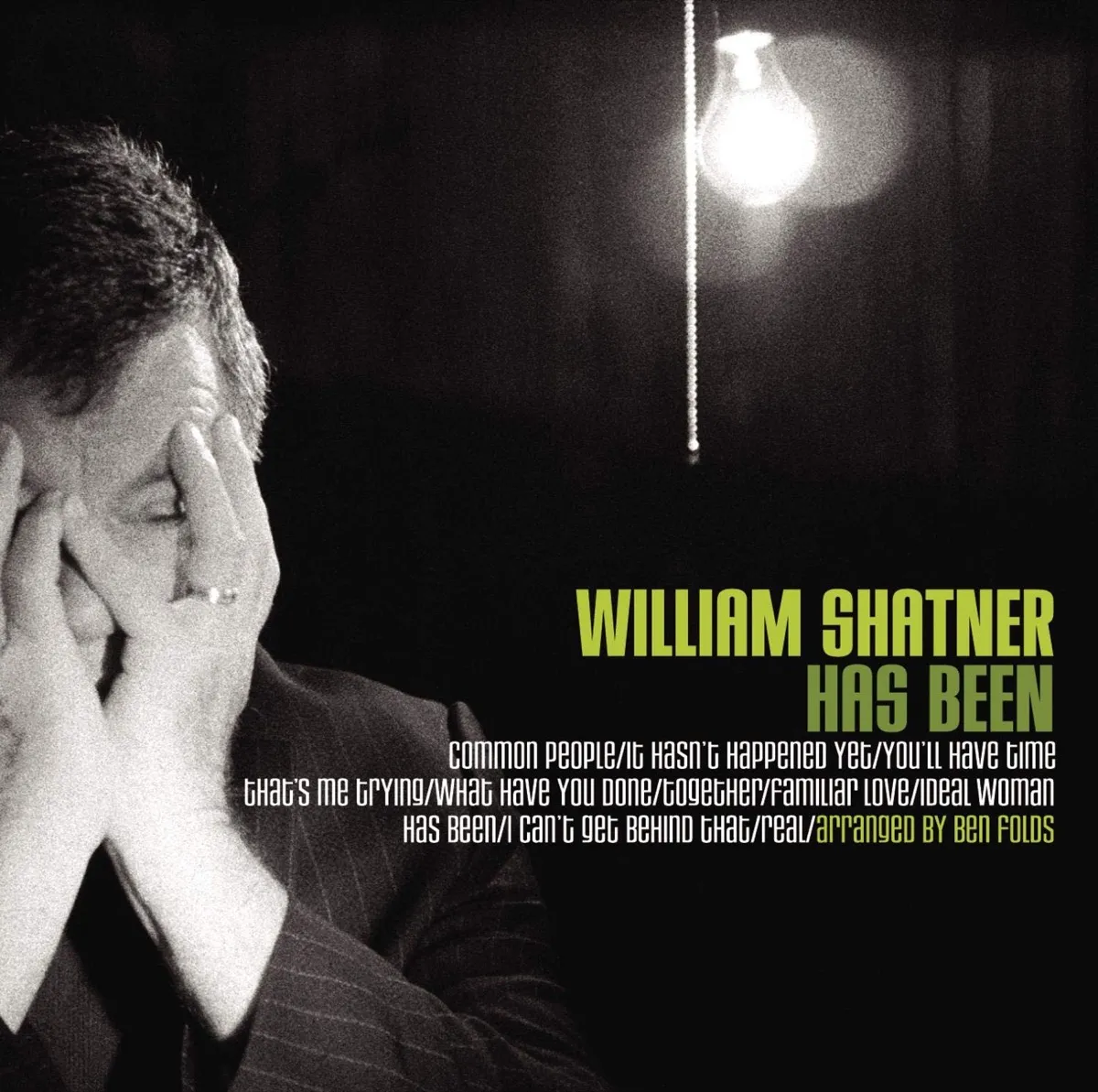
With William Shatner's previous cover efforts widely scorned—justifiably— his rendition of British alt band Pulp's gloriously arch "Common People" surprised his critics. Credit goes to musician/producer Ben Folds for his deft handling, including the supporting vocals of iconic singer-songwriter Joe Jackson. Jackson's voice replaces Shatner's midway through before they merge into a duet, together dissolving into a grand chorus for the finale. Entertaining and innovative, Shatner pulls a rabbit out of his hat with this clever rendition.
Listen here
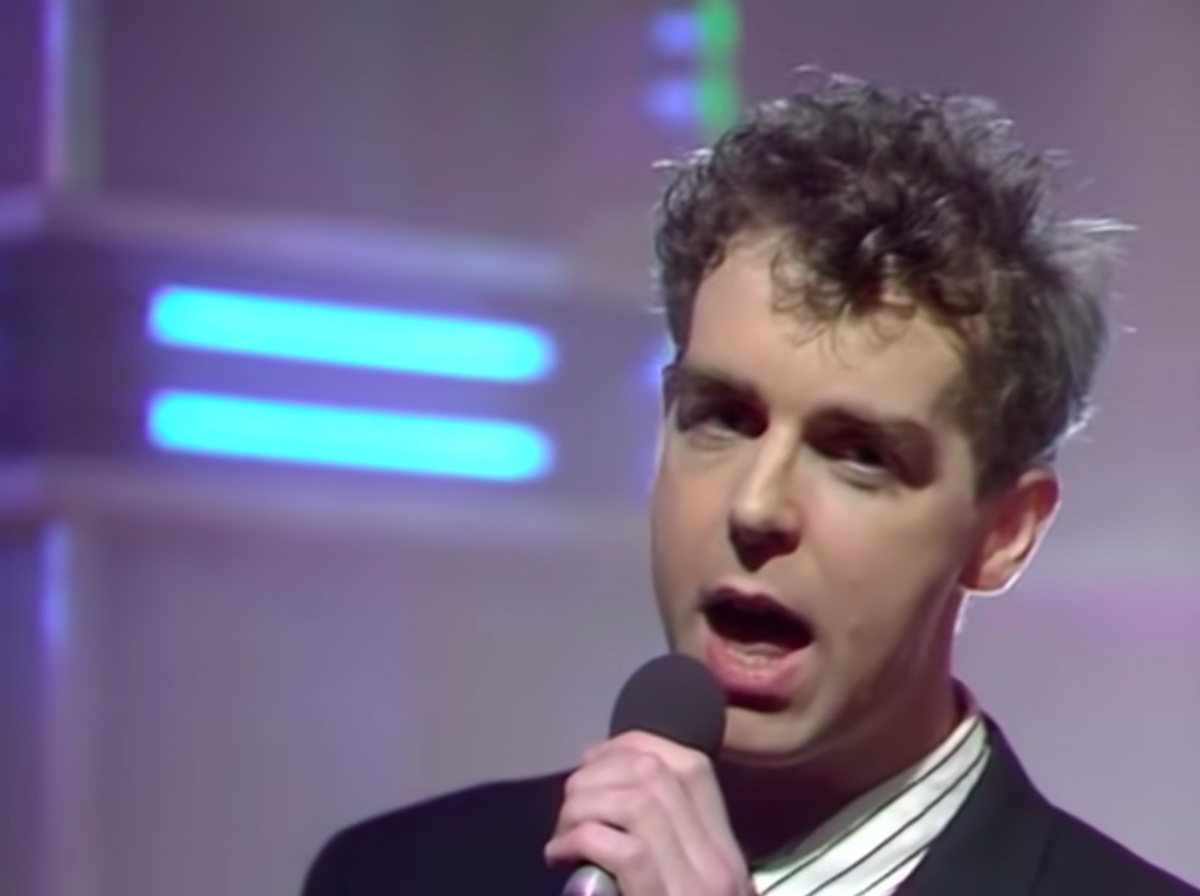
What began as a one-off Elvis Presley tribute on the 10th anniversary of the King's passing became the all-time favorite cover song in a 2014 BBC poll. The Pet Shop Boys debuted their synth-pop rendition of "Always on My Mind" on Love Me Tender, a TV special featuring top groups of 1987 performing covers of Elvis' greatest hits. The Pet Shop Boys' performance was the breakout song that became the UK's No. 1 Christmas single of that year. It dominated the charts for four weeks, reaching No. 4 on the US Billboard Hot 100.
Listen here
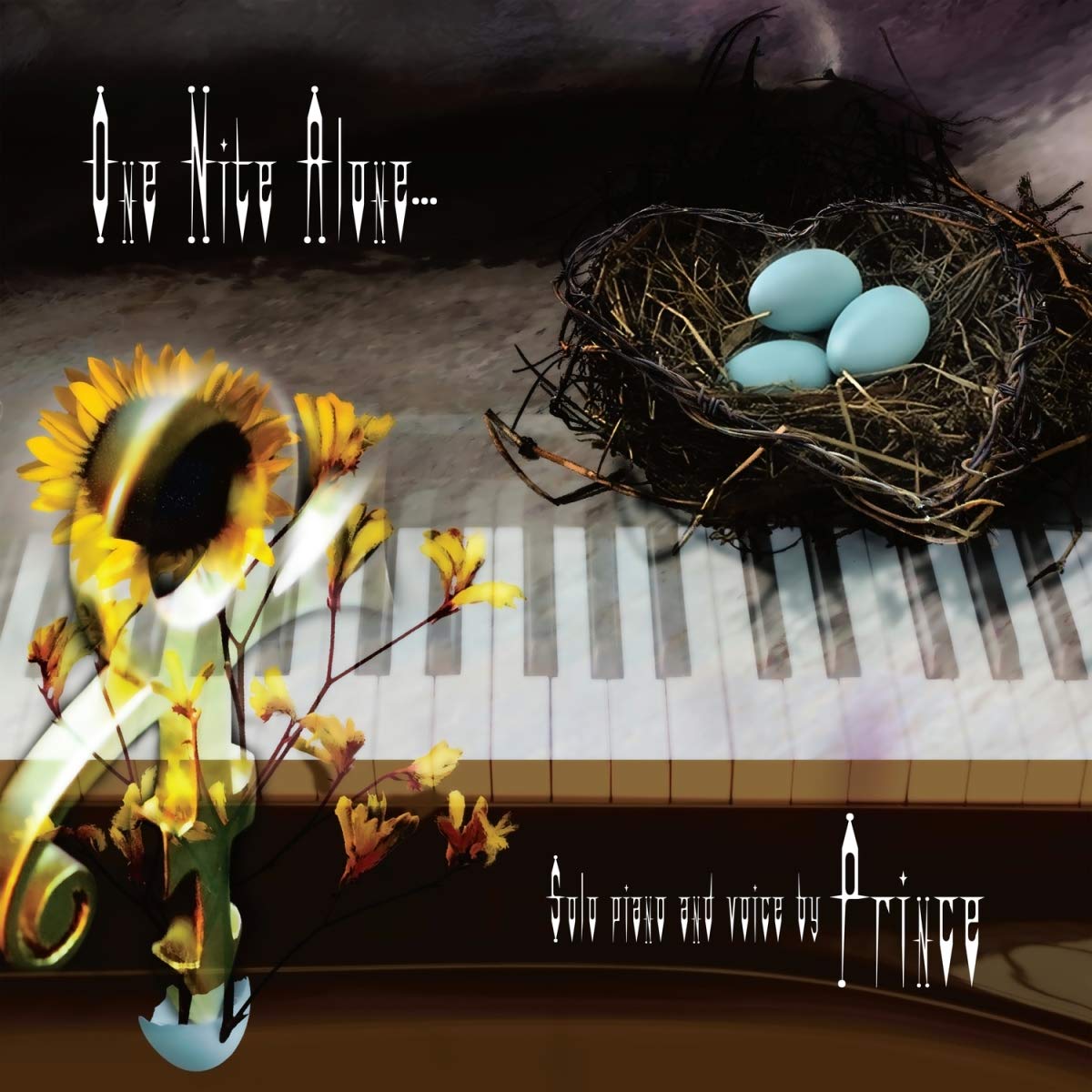
It turns out that the Purple One had a big-time crush on Joni Mitchell, showering her with fan mail, according to the beloved songstress. From Mitchell's 1971 Blue album, "A Case of You" has since been covered by over 200 artists, though none as poignantly as Prince. First performed live in Minneapolis in 1983, it wasn't until 2001 that the studio track was laid down. Prince tinkered with various iterations of this much-loved song right up to his untimely death in 2016.
Listen here
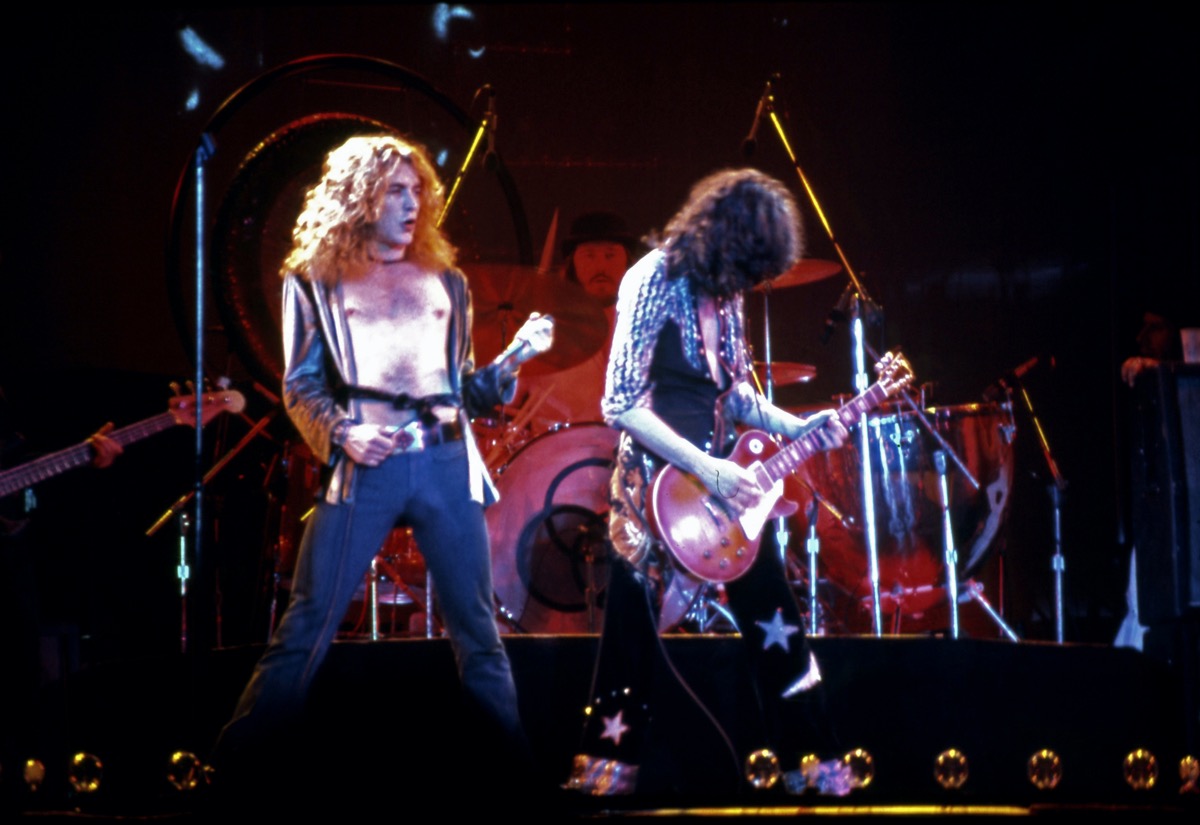
With the addition of contemporary drug references, "Nobody's Fault But Mine" may be better described as an adaptation than a cover. The booming hard-rock masterpiece was a track on the band's 1976 penultimate studio album Presence. It returned the band to its blues roots, the sound that had first elevated them to rock god status.
Listen here
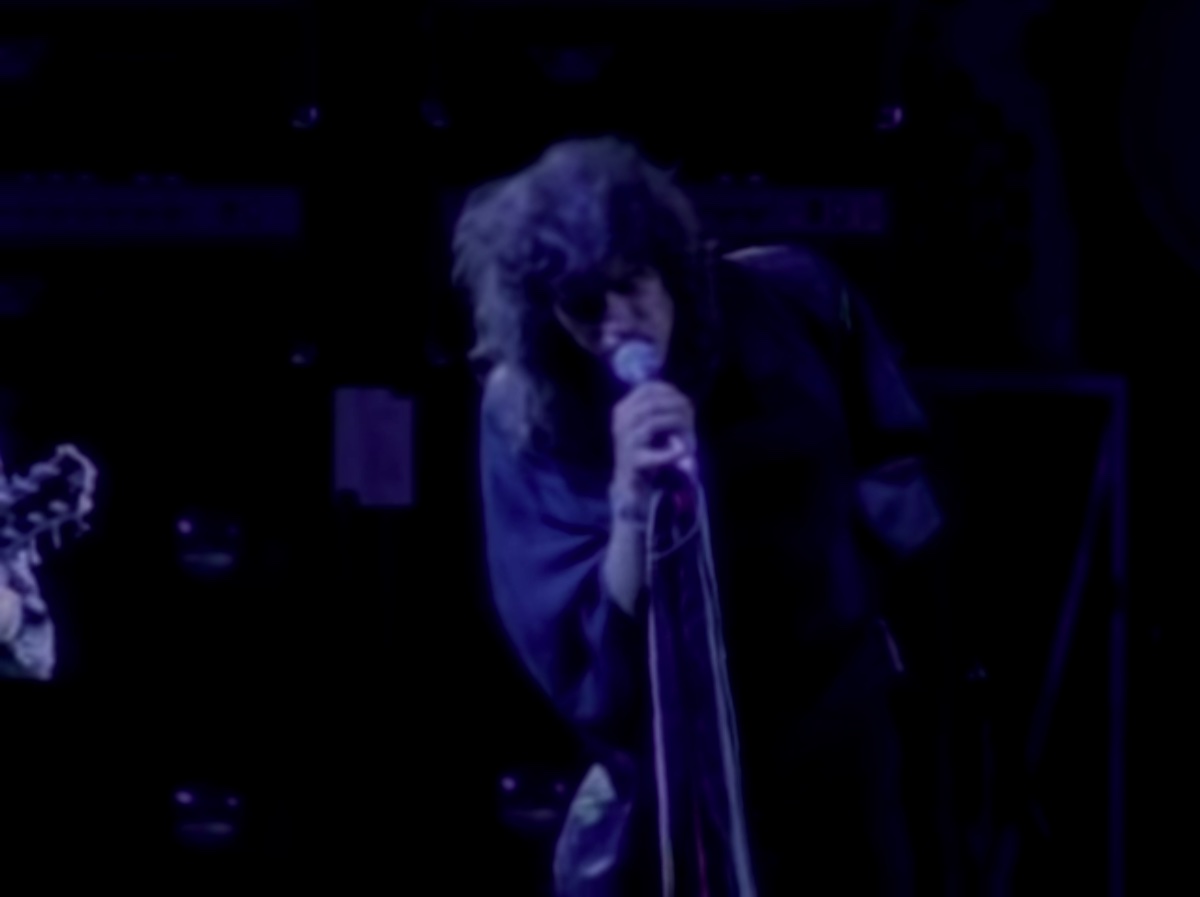
This was one of the Boston Bad Boys' best cuts before they descended into ballad-y pablum. Like "Back in the Saddle," also from the 1976 album Rocks, "Walkin' the Dog" is among the group's sharpest efforts, strutting their prowess as one of the premier rock bands of all time. Many artists and groups took a shot at the Rufus Thomas R&B classic, but the Aerosmith version is the most raucous fun, a salute to what the group was built for.
Listen here
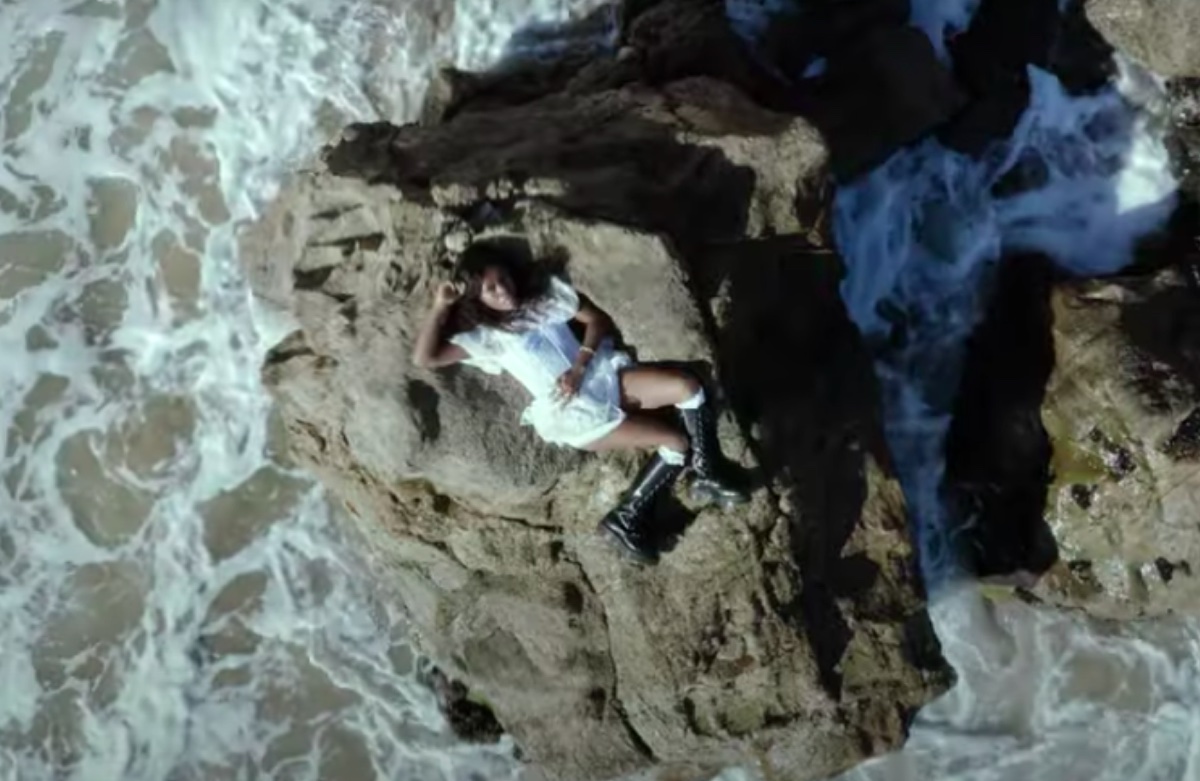
This gorgeous rendition comes courtesy of Zimbabwe-born hip-hop artist Tkay Maidza, who resurrects the seminal '80s punk/pop group that defied labeling. In the process, we rediscover the band's mind-bending brilliance, as Maidza's modernized classic swirls with a headiness and sensuality that honors the original.
Listen here

Fleetwood Mac is having a well-deserved moment. This latest homage by The Highwomen, the constellation of female musical stars composed of Brandi Carlile, Natalie Hemby, Maren Morris, and Amanda Shires, delivers a perfect—perhaps too perfect?—rendition of the Mac's most excellent number.
Listen here

This tribute to late Soundgarden frontman Chris Cornell features original band members Kim Thayil, Ben Shepherd, and Matt Cameron. Combined with Brandi Carlile's fearless, soaring vocals, this execution of this grunge anthem is spine-chillingly evocative, as if channeling the music legend.
Listen here
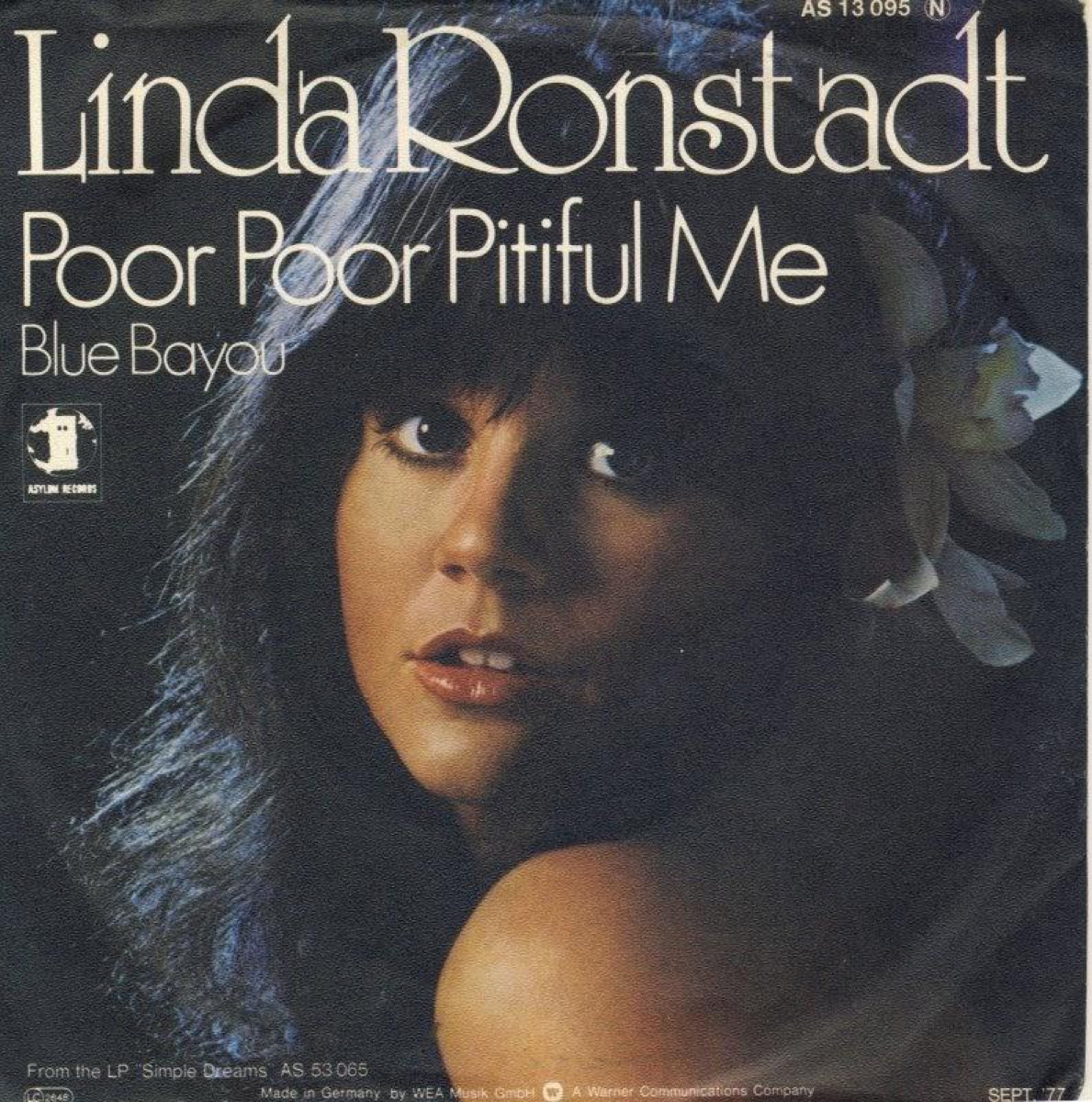
For those old enough to recall the 1970s, Linda Ronstadt is remembered as a towering talent of the era. She covered the lyrical stylings of Buddy Holly, Chuck Berry, Roy Orbison, the Everly Brothers, Patsy Cline, Bob Dylan, James Taylor…and the list goes on. There was almost no musical genre Ronstadt did not explore and conquer (including her virtuosity on What's New, her album of American Standards with the Nelson Riddle Orchestra.) But it was Warren Zevon's quirky lyrics that occupied a special place in her heart. "JD Souther and Jackson Browne were really good friends with him, so I used to meet him sometimes and I loved his songs," she told Ultimate Classic Rock. "I started doing as many of his songs as I could figure out how to do." They remain among her best.
Listen here
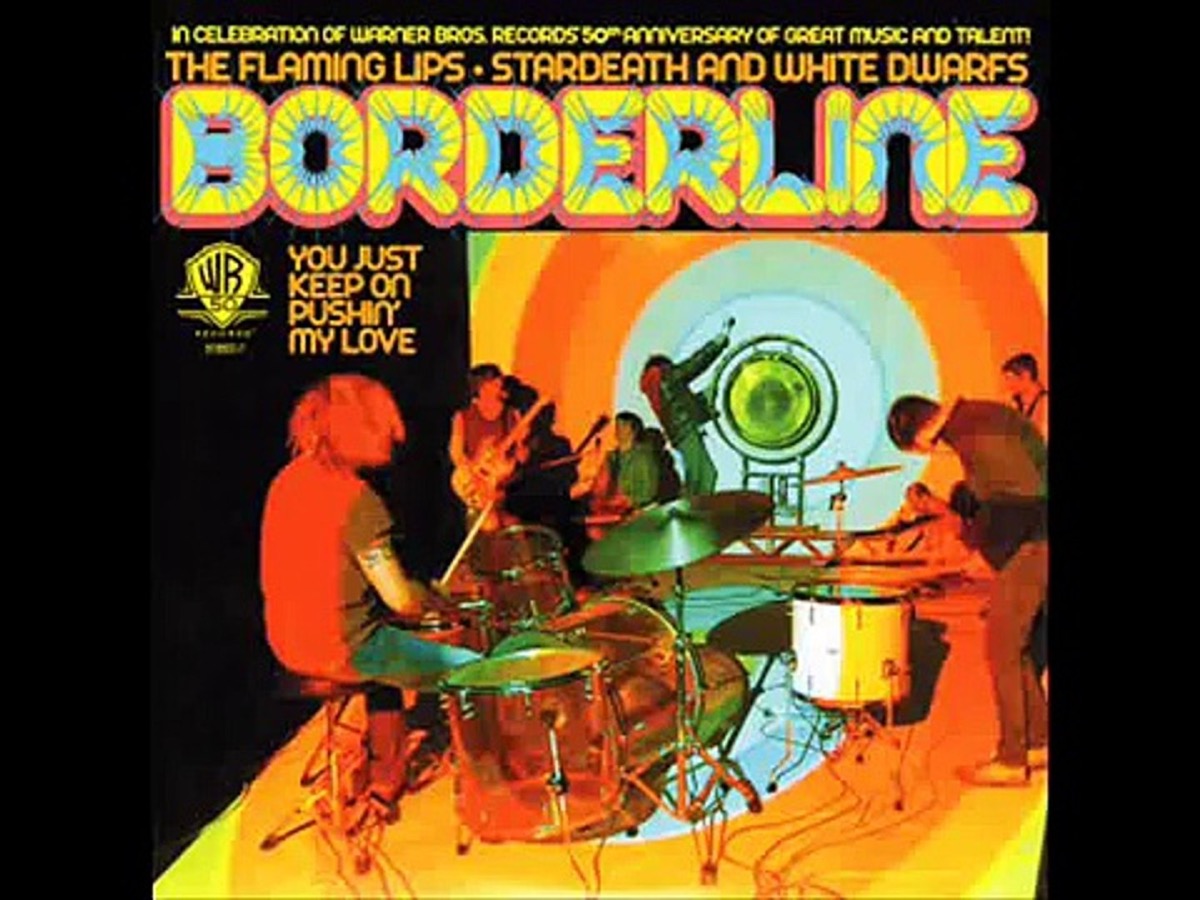
This inventive iteration of Madonna's highly-caffeinated '90s hit starts out tenderly, leans into a glee club-style chorus, and finishes with a clamorous jam. Joyously complex and out there, somehow it works.
Listen here
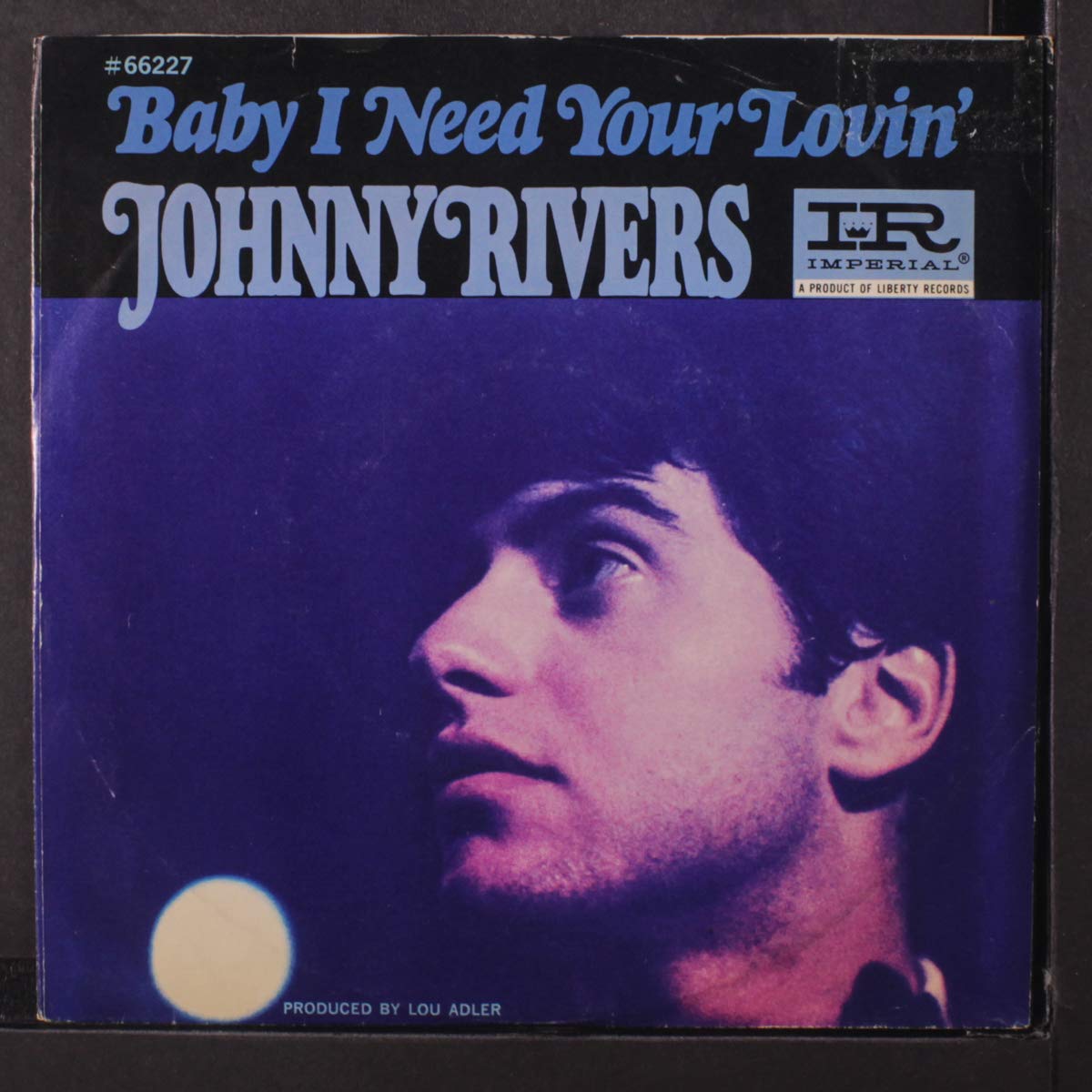
Hard to imagine besting a Motown classic, but Johnny Rivers did just that, charting higher than the original Four Tops track in 1967. Rivers was famous for a stream of hits in that decade—both covers and those he wrote—including "Mountain of Love," "Midnight Special," "Seventh Son," "The Poor Side of Town," and his most famous, "Secret Agent Man."
Listen here
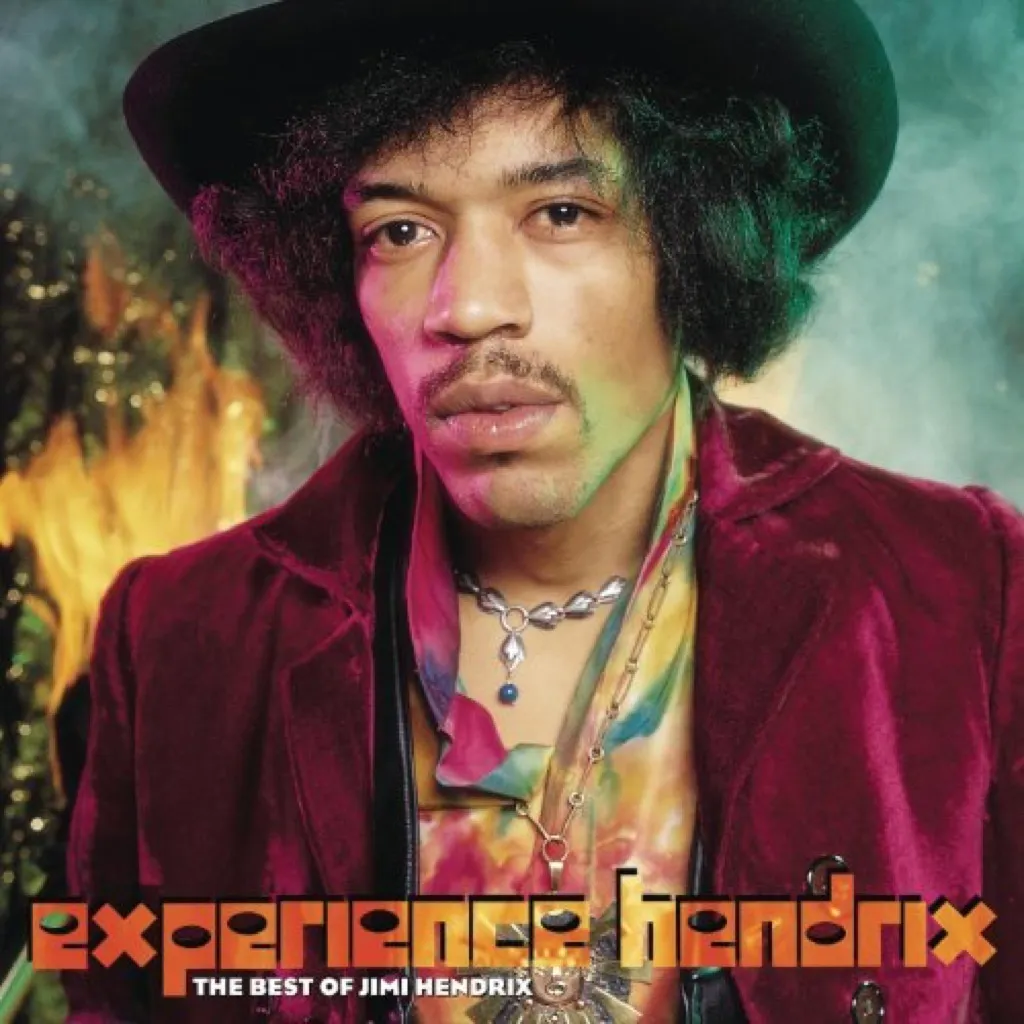
Jimi Hendrix's rowdier, louder, punchier, and electrified version of Bob Dylan's classic song, released in 1968, blew even the original songwriter away. "It overwhelmed me," Dylan later said, about hearing Hendrix's cover for the first time.
Listen here
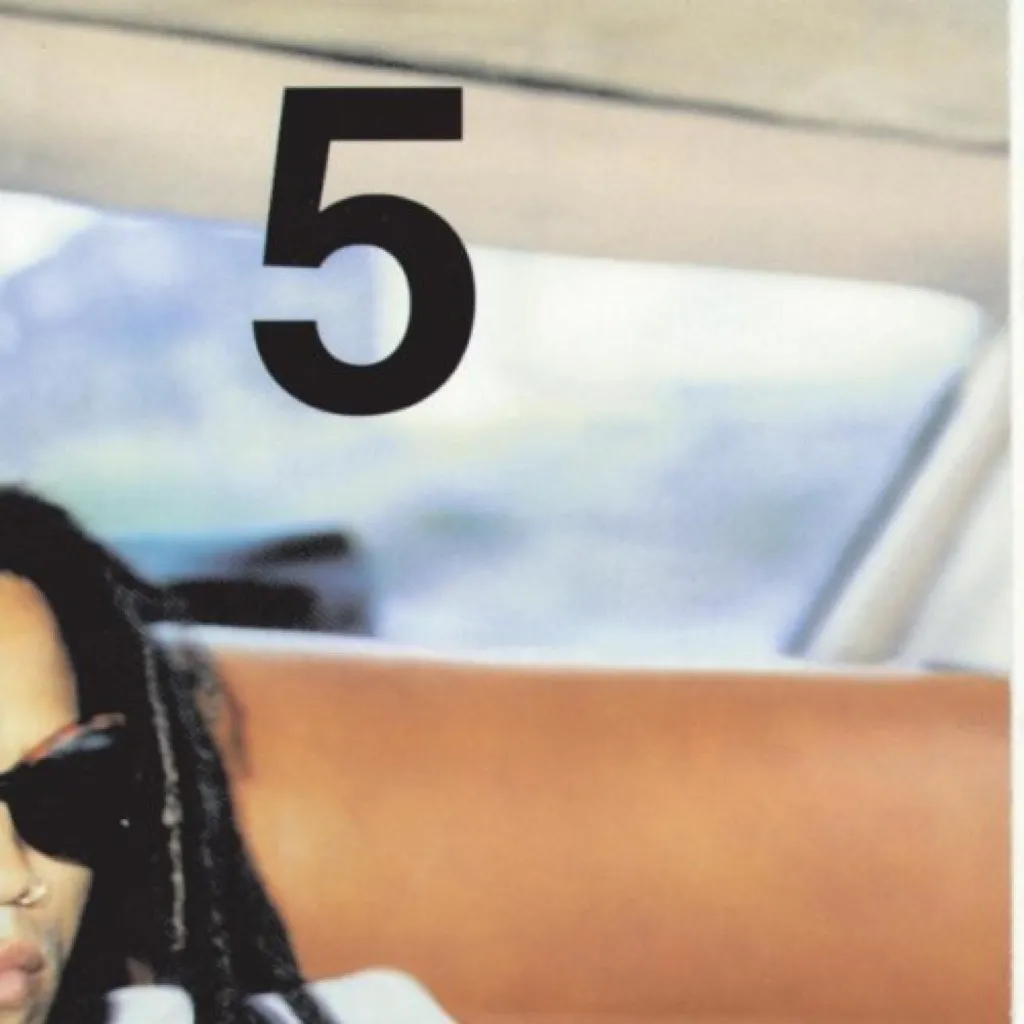
In 1970, Canadian rock band The Guess Who burned up the pop charts with "American Woman," which they claimed was a love letter to the women of their own country. Lenny Kravitz's powerful, updated version won the Grammy for Best Male Rock Vocal Performance in 1999.
Listen here
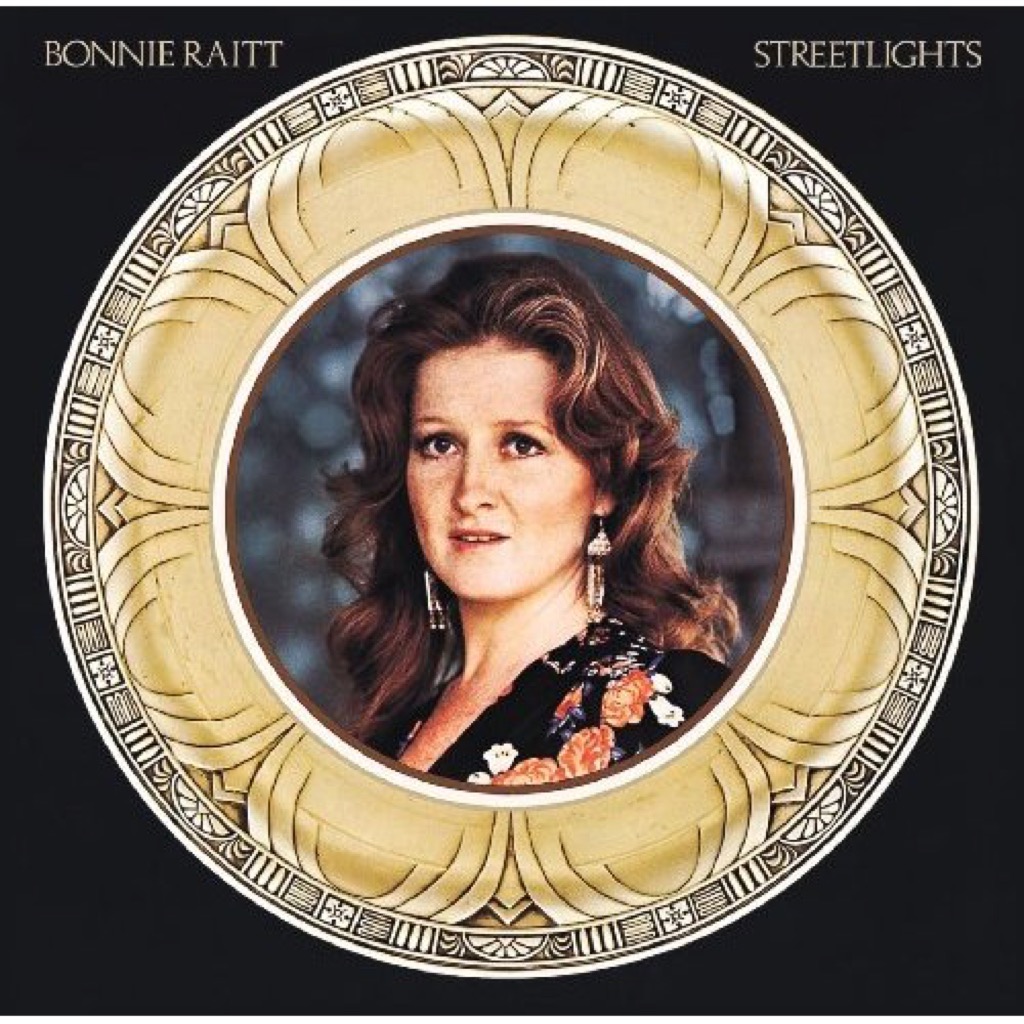
Bonnie Raitt's heartfelt rendition of a middle-aged woman trying to escape her circumstances became one her most important recordings, expressing lost love, regret, and longing. The song, however, was penned by the the masterful John Prine, who recently passed away from COVID-19. The two pals would even perform the song together on occasion.
Listen here

Bruce Springsteen co-wrote the song with Patti Smith, and it would become a hit single from her 1978 album Easter. He changed the lyrics for his version from what he described as just another love song into a coarse, introspective journey in search of truth. The fact that he actually co-wrote the track establishes it as one of the best cover songs out there.
Listen here
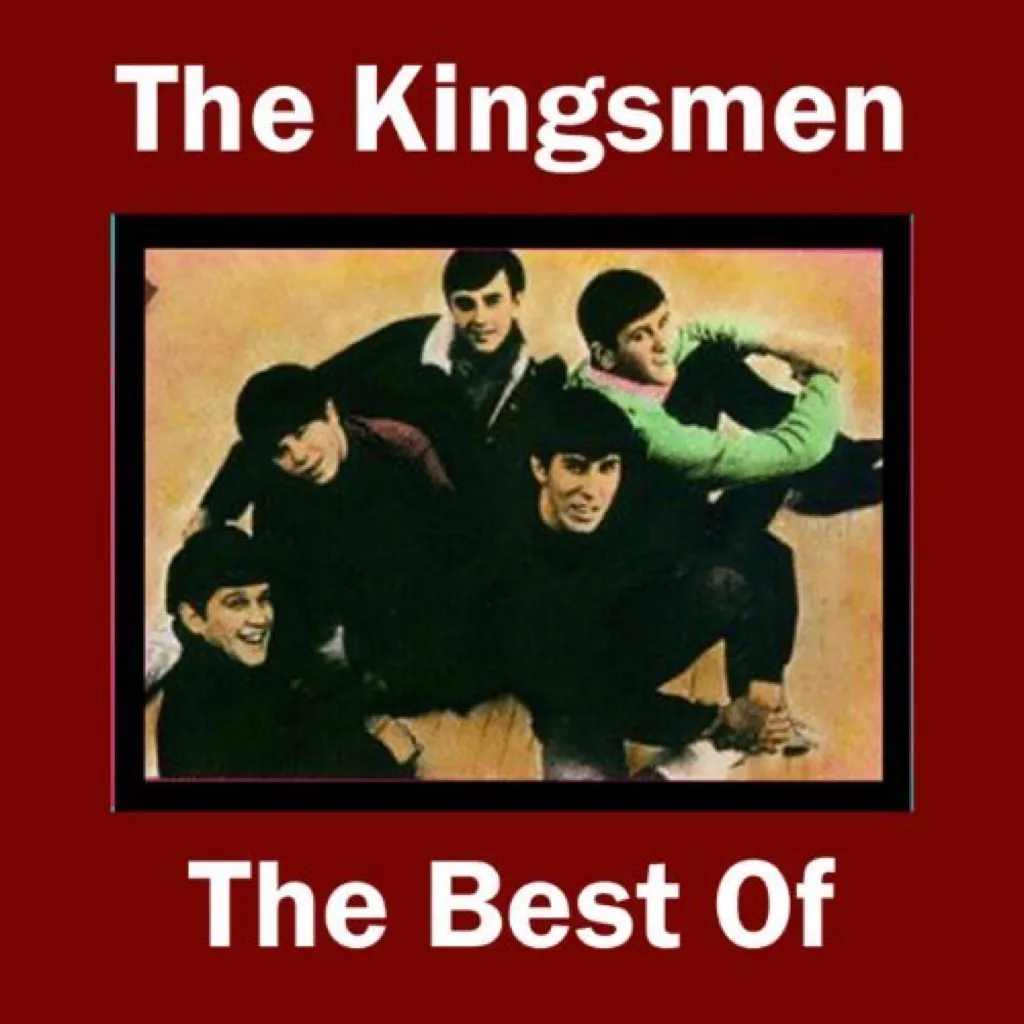
The raucous, jangly Kingsmen recorded the number in under an hour in less than ideal circumstances. And despite the band unanimously agreeing that it was awful, the three-chord classic became a sensation, rising to No. 2 on the national charts. Following outrage from parents about the potentially obscene—incoherent, really—lyrics, a two-year FBI investigation was launched. The feds made countless attempts at deciphering the lyrics, convinced the song was communicating in obscene code to teen subversives. But they came up with nothing.
Listen here
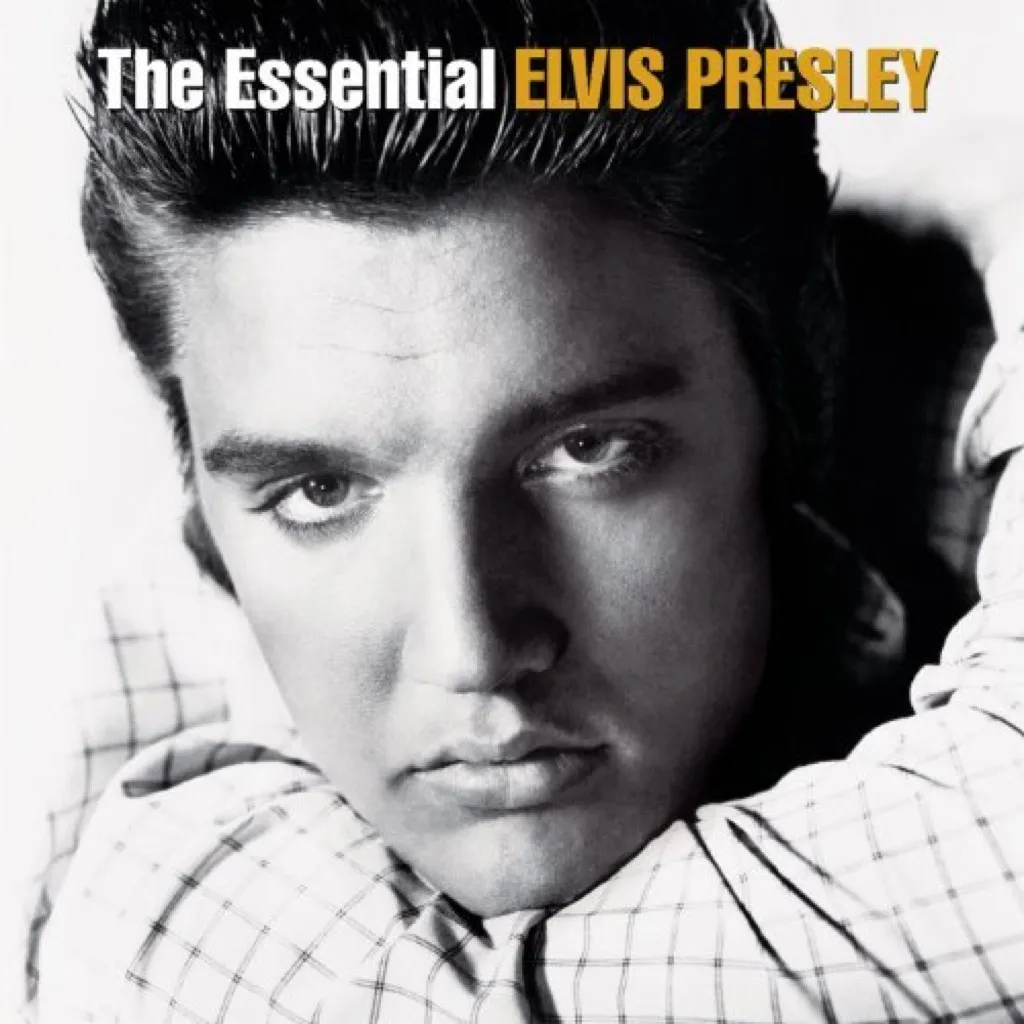
Considered one of the first rockabilly songs, Carl Perkins' "Blue Suede Shoes" would later be covered by the likes of rock 'n' roll pioneers, such as Buddy Holly, Eddie Cochran, and Elvis Presley. Elvis considered his version, which was a massive hit, a tribute to his friend, Perkins.
Listen here
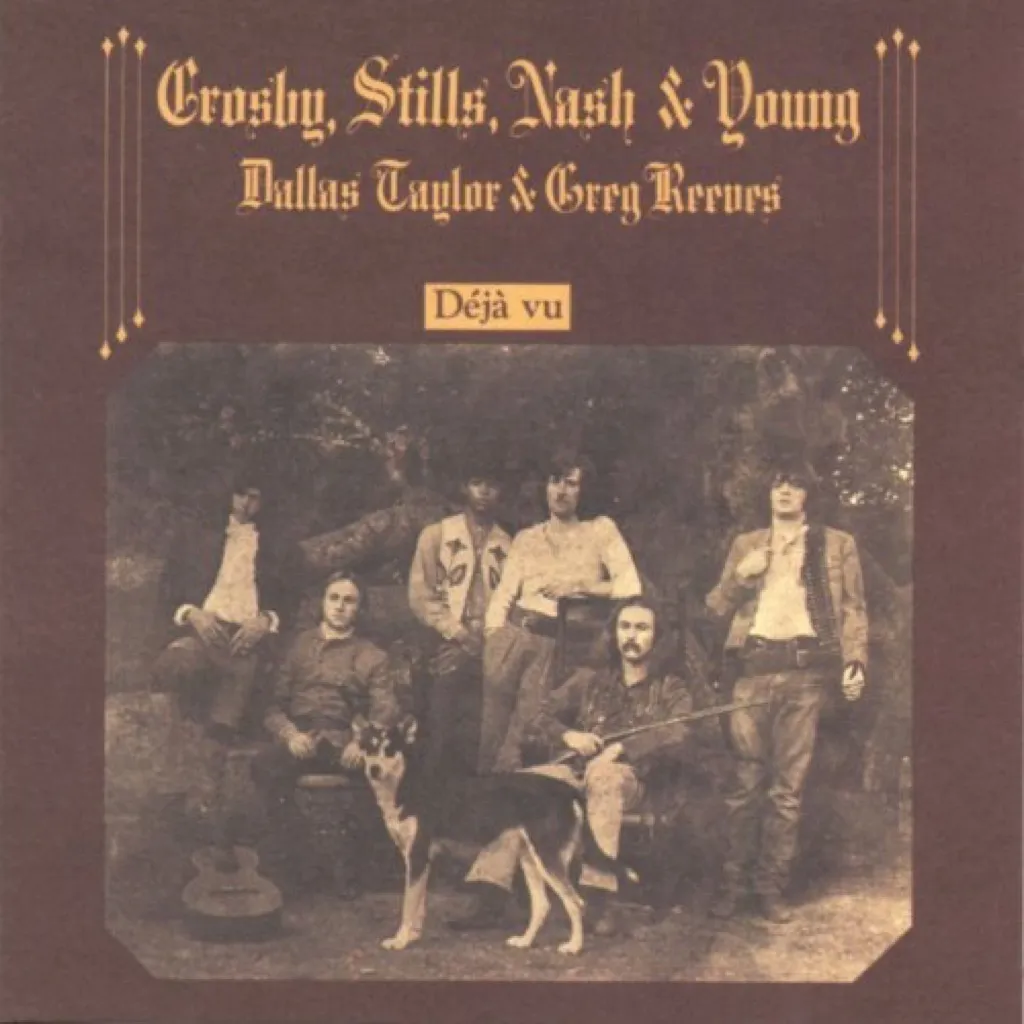
Joni Mitchell wrote "Woodstock" in a moment of spiritual reflection, considering the Woodstock gathering a biblical fishes-and-loaves story of optimism. Crosby, Stills, Nash & Young ran with that idea, conjuring up a celebratory, electrified jam, woven together with the band's mellifluous harmonies to create yet another iconic soundtrack of a generation.
Listen here
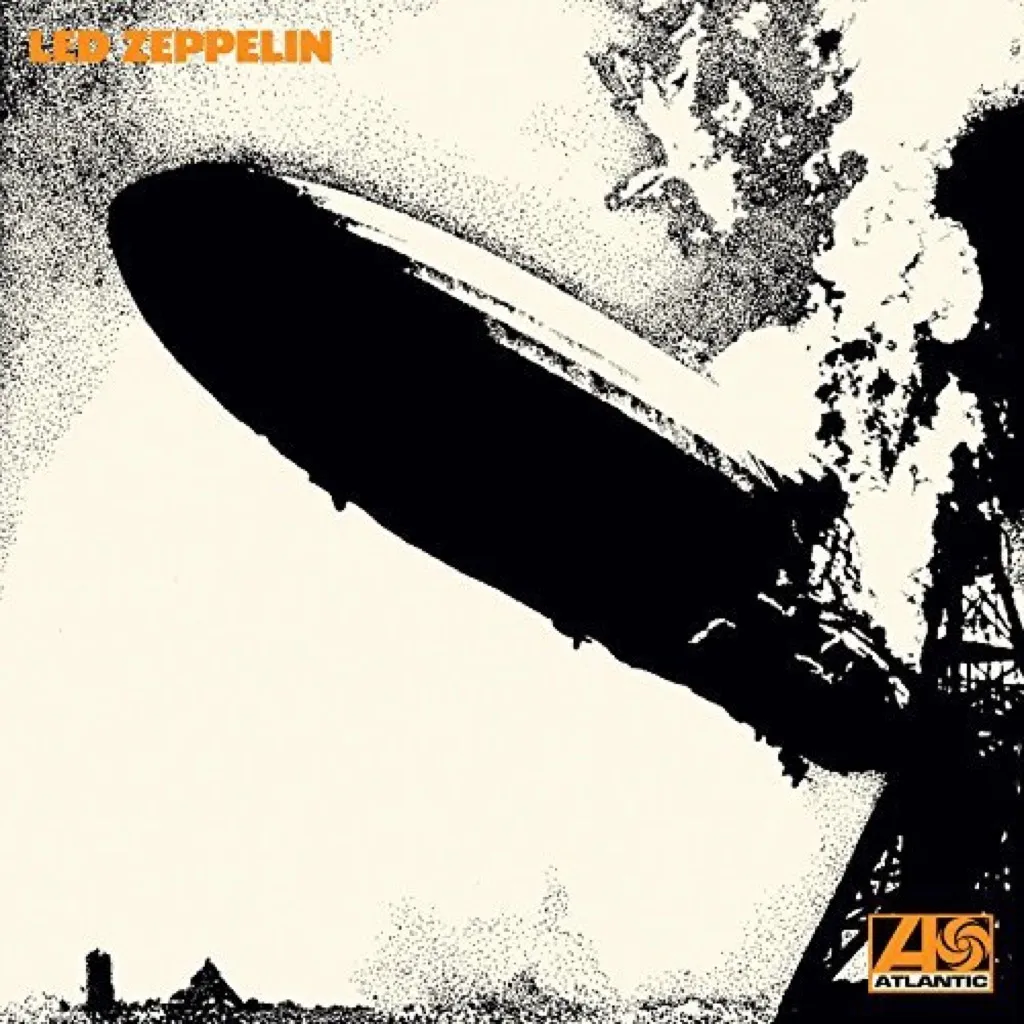
American singer-songwriter Jake Holmes debuted "Dazed and Confused," a song about a breakup, in 1967. It was soon copied by the British group The Yardbirds, who became The New Yardbirds with the addition of session guitarist Jimmy Page. Page appropriated the tune further with his next band—a little group you may have heard of called Led Zeppelin. Holmes cited copyright infringement in 2010, though the case was dismissed when a settlement between parties was reached out of court.
Listen here
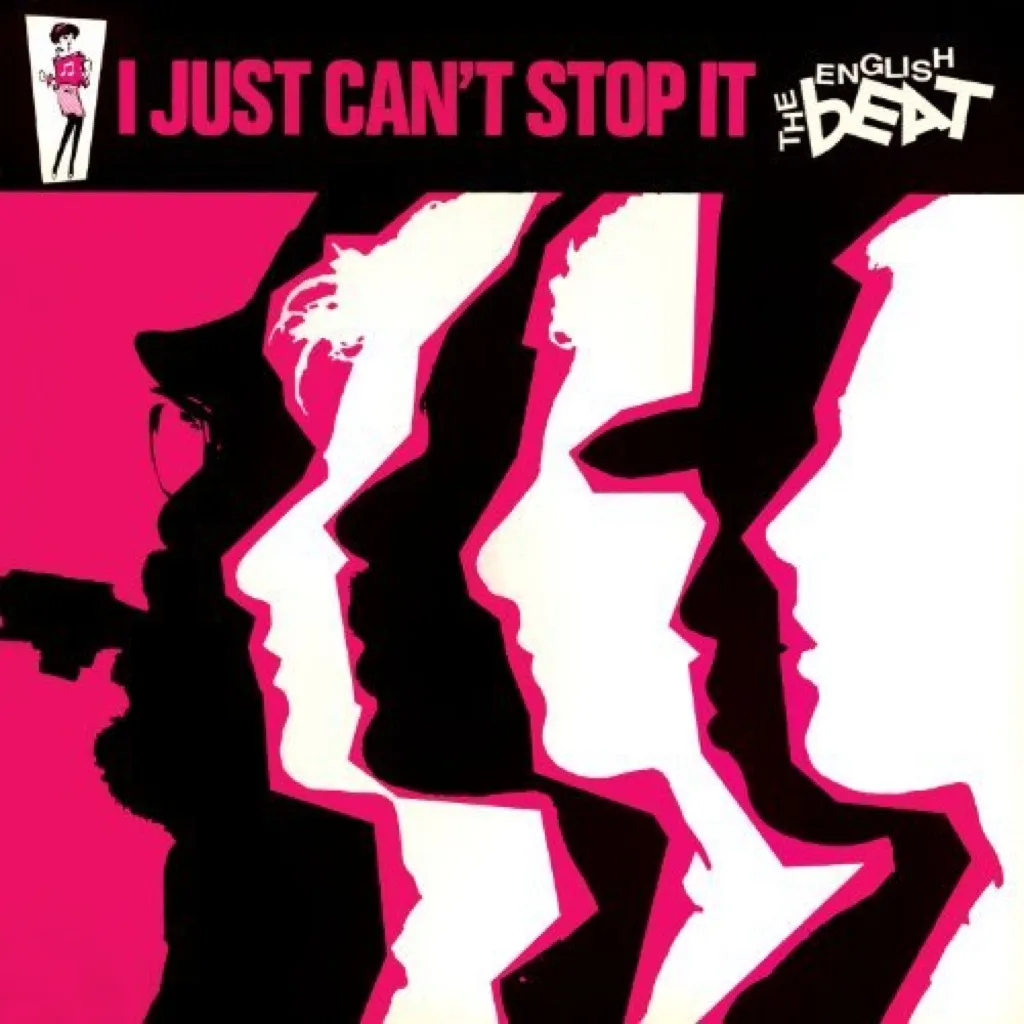
Andy Williams' 1962 hit was reborn reggae-style by The Beat on their 1980 album, I Just Can't Stop It. Frontman Dave Wakeling's father loved the original, and as it happened, the song was a perfect fit for the ska treatment. "The bass line translated into a reggae feel effortlessly," said Wakeling told Rolling Stone. "The pizzicato strings became guitar skanks, and the melody floated over the top."
Listen here
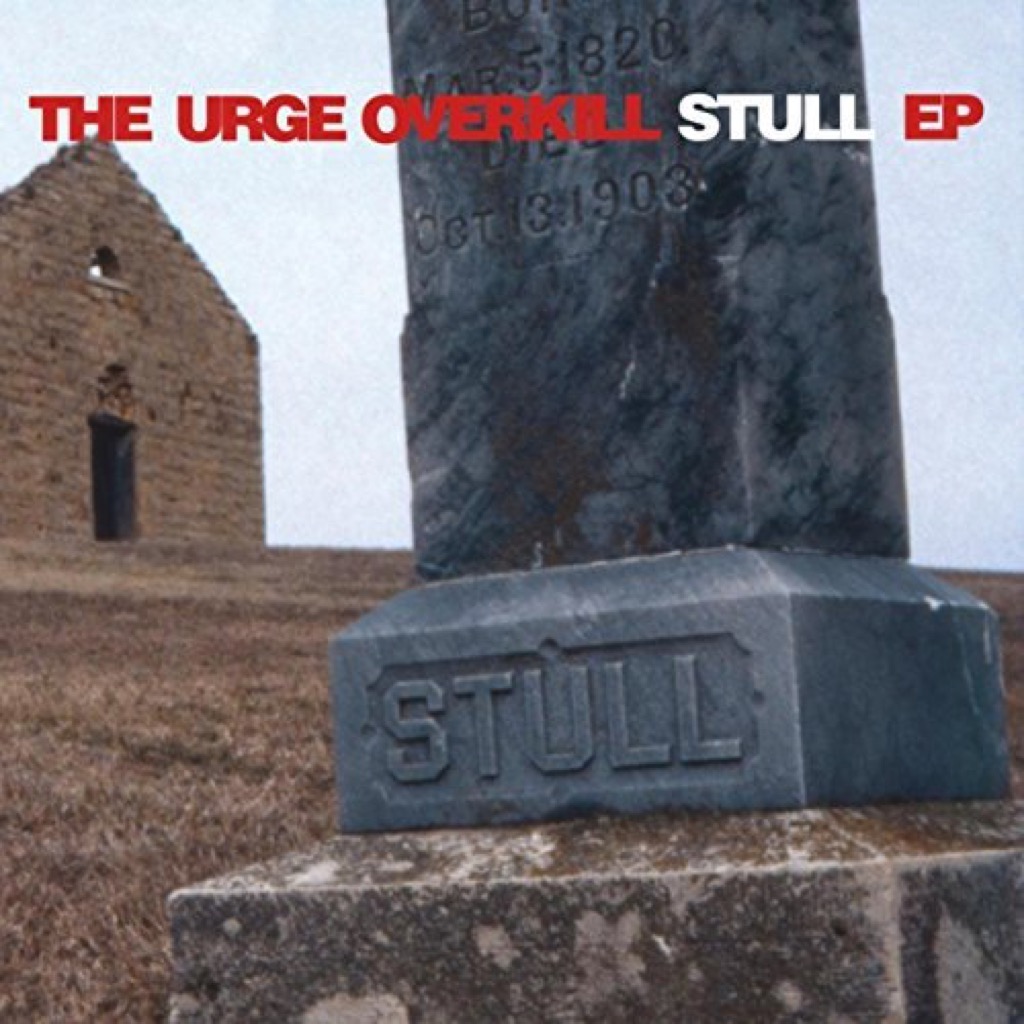
Director Quentin Tarantino is credited with popularizing this remake by indie rock legends Urge Overkill, after including it in the soundtrack to his 1994 film Pulp Fiction. According to Tarantino, it's "even better" than Neil Diamond's original. And for more flicks with great music, check out 17 Movie Soundtracks Every Kid from the '90s Loved.
Listen here
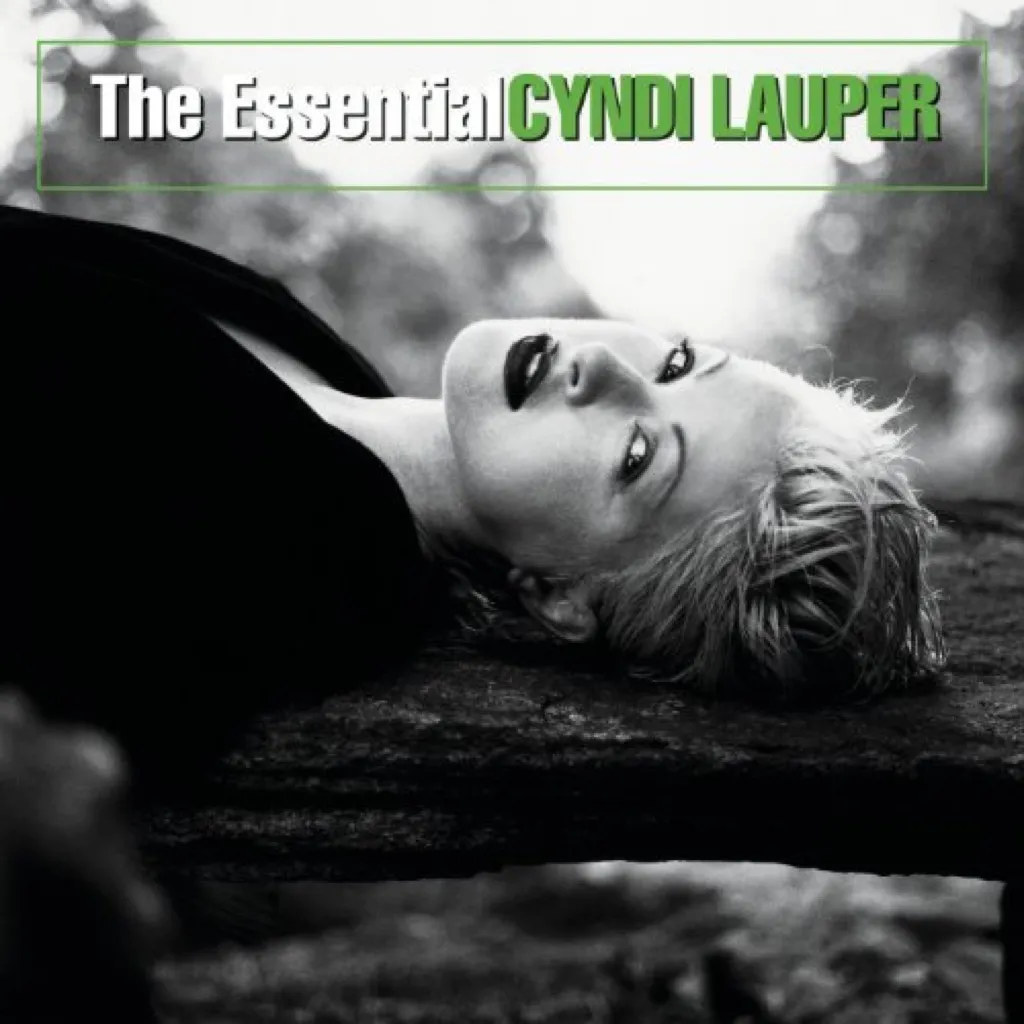
Plenty of artists have covered this iconic number written by Robert Hazard, but none come close to the iconic version by Cyndi Lauper, which exploded on radio and MTV in 1983.
Listen here
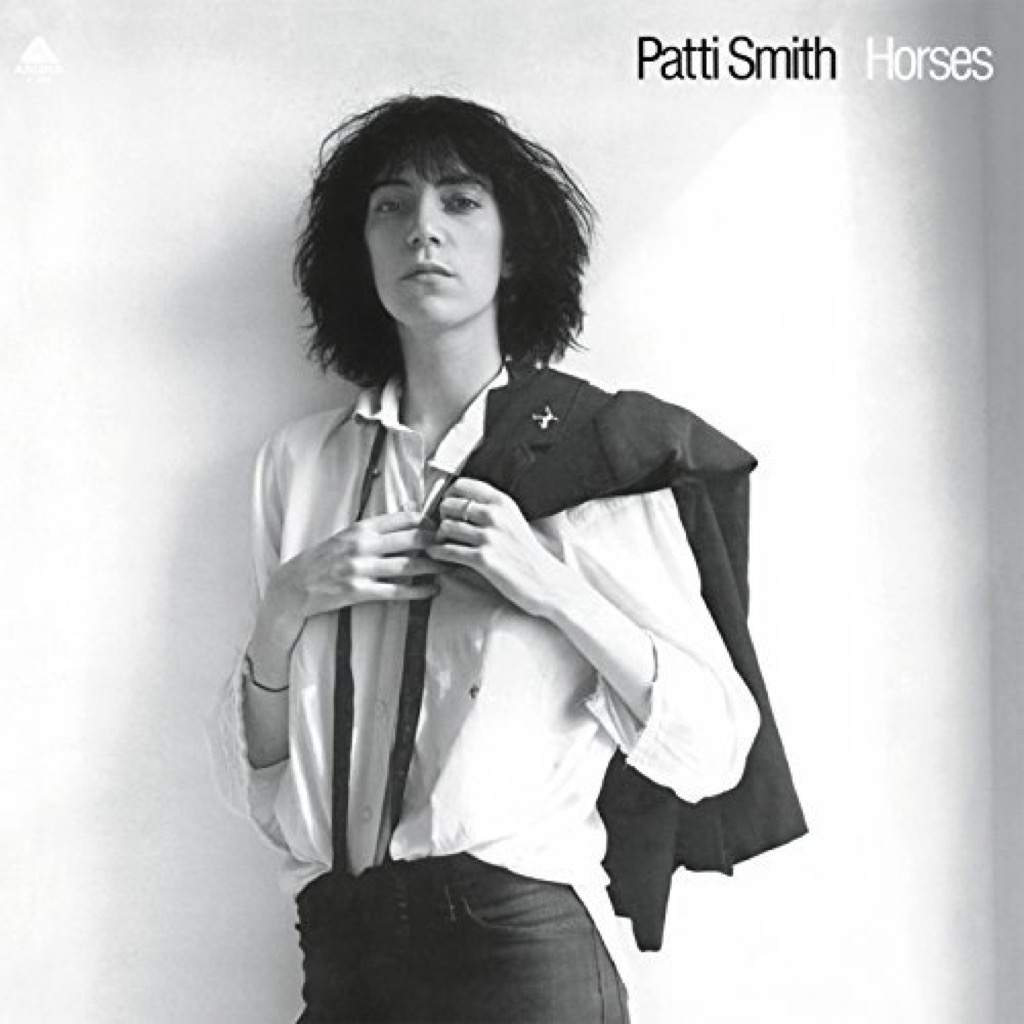
Patti Smith's guttural voice, smoldering and dangerous, unfolds with the words, "Jesus died for somebody's sins but not mine" (an excerpt from "Oath," an early poem disavowing her Jehovah's Witness upbringing ). The song steadily builds tempo like a locomotive, transforming the garage rock classic into a full-on punk explosion.
Listen here
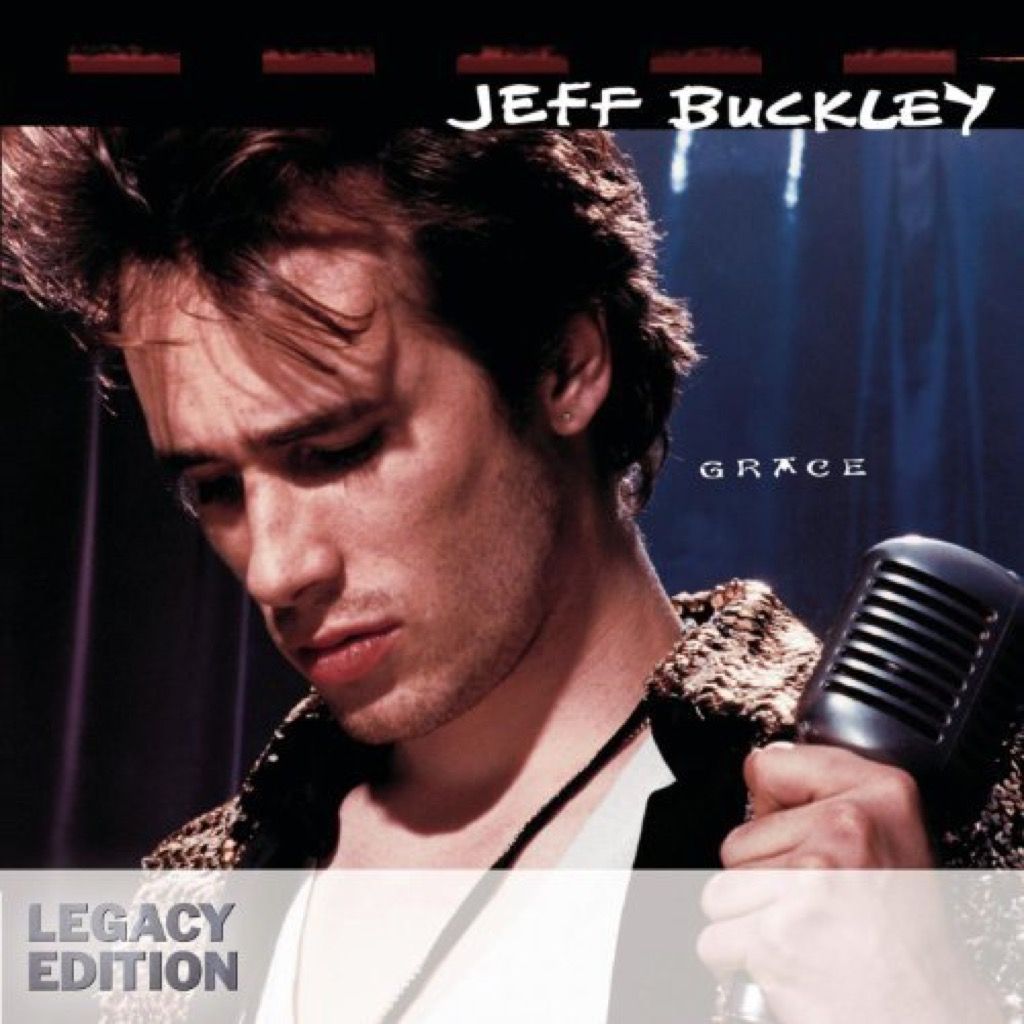
Jeff Buckley's "Hallelujah" is a secular take on the belovedLeonard Cohen hymn, imbued with sexual tension, longing, and reflection on the fleeting nature of life—a sentiment made even more poignant by the singer's untimely death by drowning on May 29, 1997.
Listen here
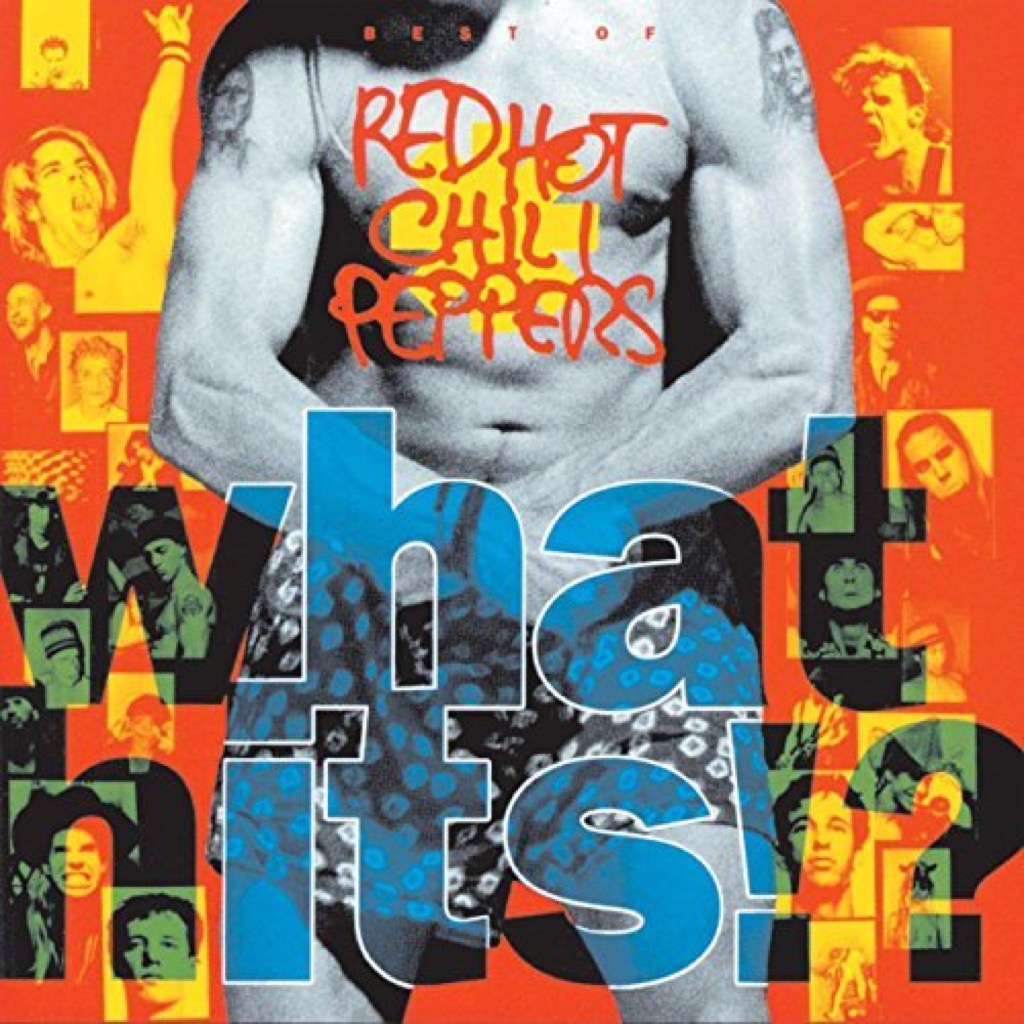
It's hard to believe anyone would be bold enough to tackle a tune by Stevie Wonder, but the Red Hot Chili Peppers' "Higher Ground" more than did justice to one of the soul legend's biggest hits. It even scored the group its first Grammy nomination in 1991—Best Rock Vocal Performance by a Duo or Group.
Listen here
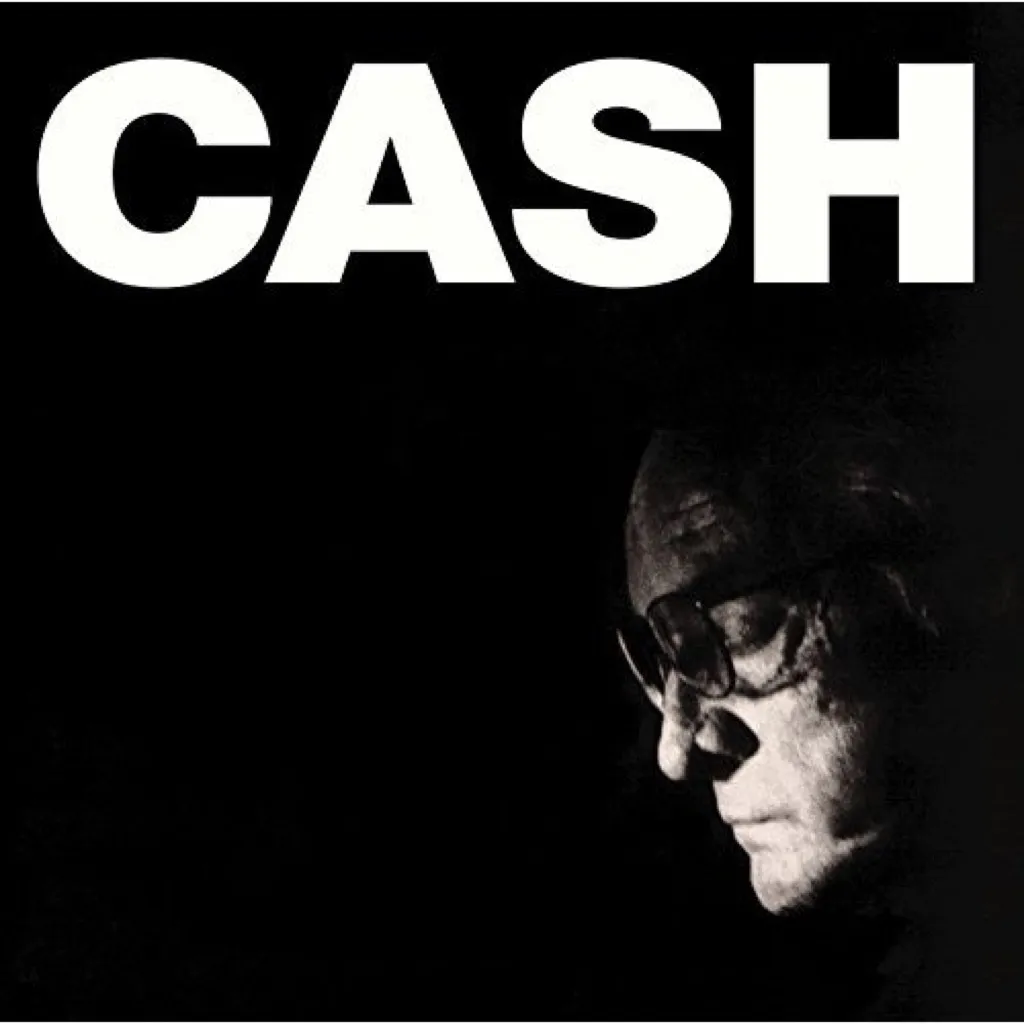
In the twilight of a legendary career, Johnny Cash recorded one of his most memorable songs, aided again by super-producer Rick Rubin. Cash is transcendent, making Trent Reznor's dark, mournful, lyrics seem all his own—as if they had been all along. Sadly, Cash passed away seven months laster .
Listen here
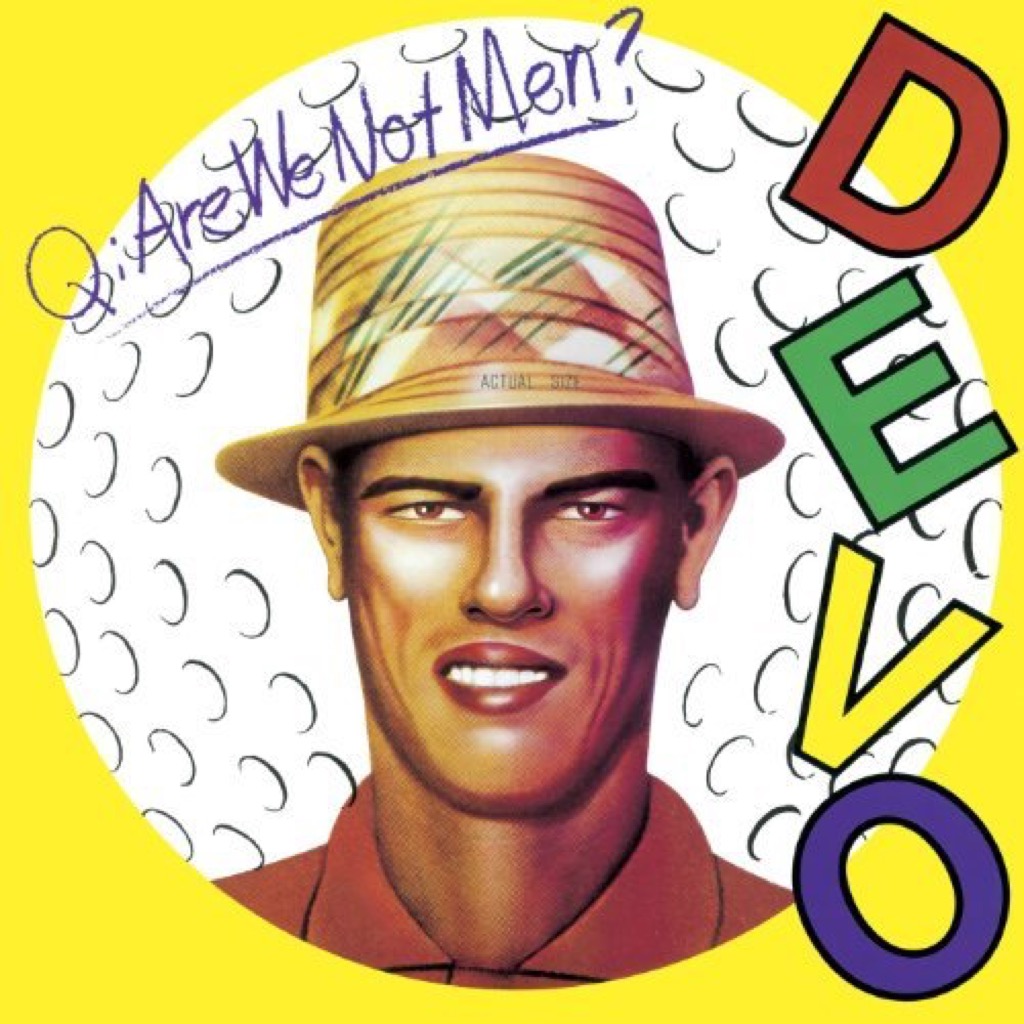
The ultimate new wave twist on a song about alienation and sexual frustration, delivered by Devo's Mark Mothersbaugh, who likely understood those sentiments intimately. Recorded in 1977 with genius producer Brian Eno at the helm, it was cleared for release by Mick Jagger himself.
Listen here
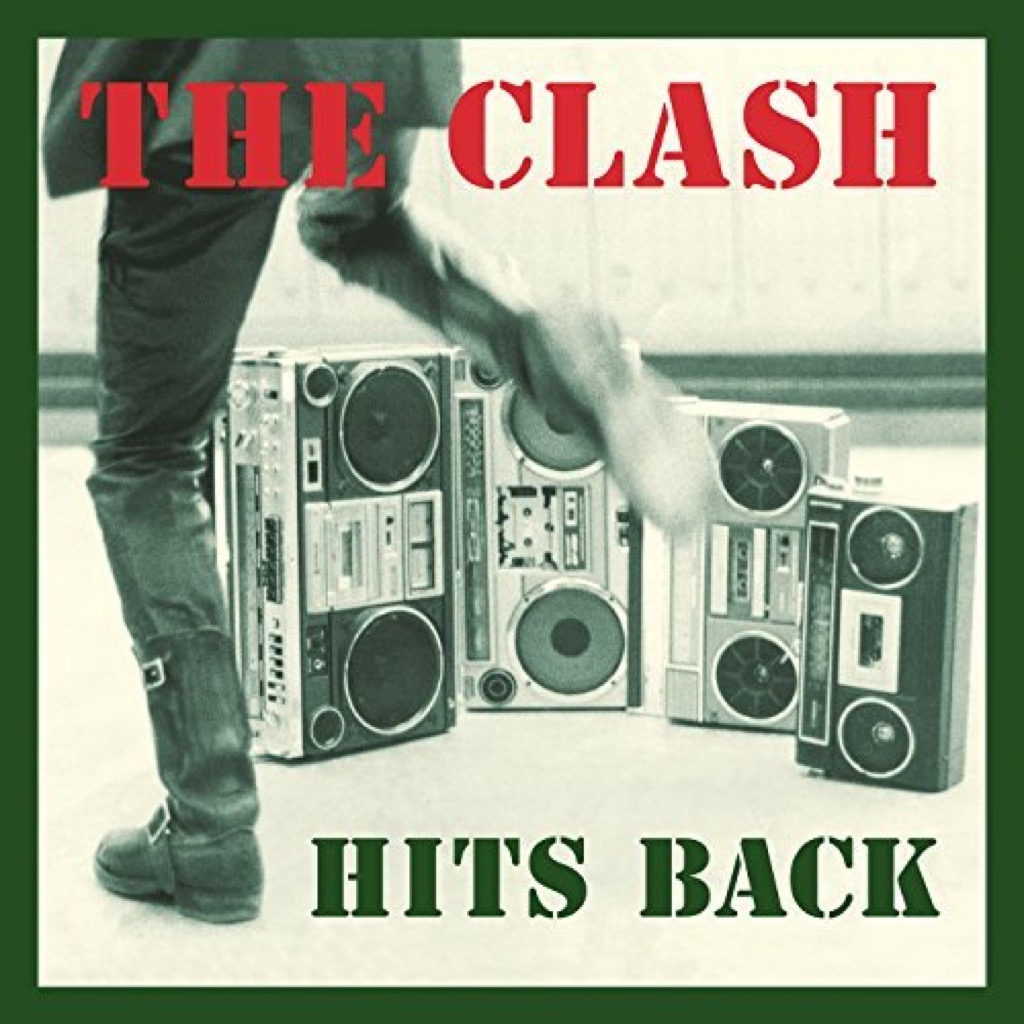
This song was originally penned by Sonny Curtis of the Crickets, Buddy Holly's replacement following his untimely demise. Covered by Hank Williams, Jr., the Dead Kennedys, and others, The Clash's version of the song took its cue from the Bobby Fuller Four's 1965 rendition.
Listen here
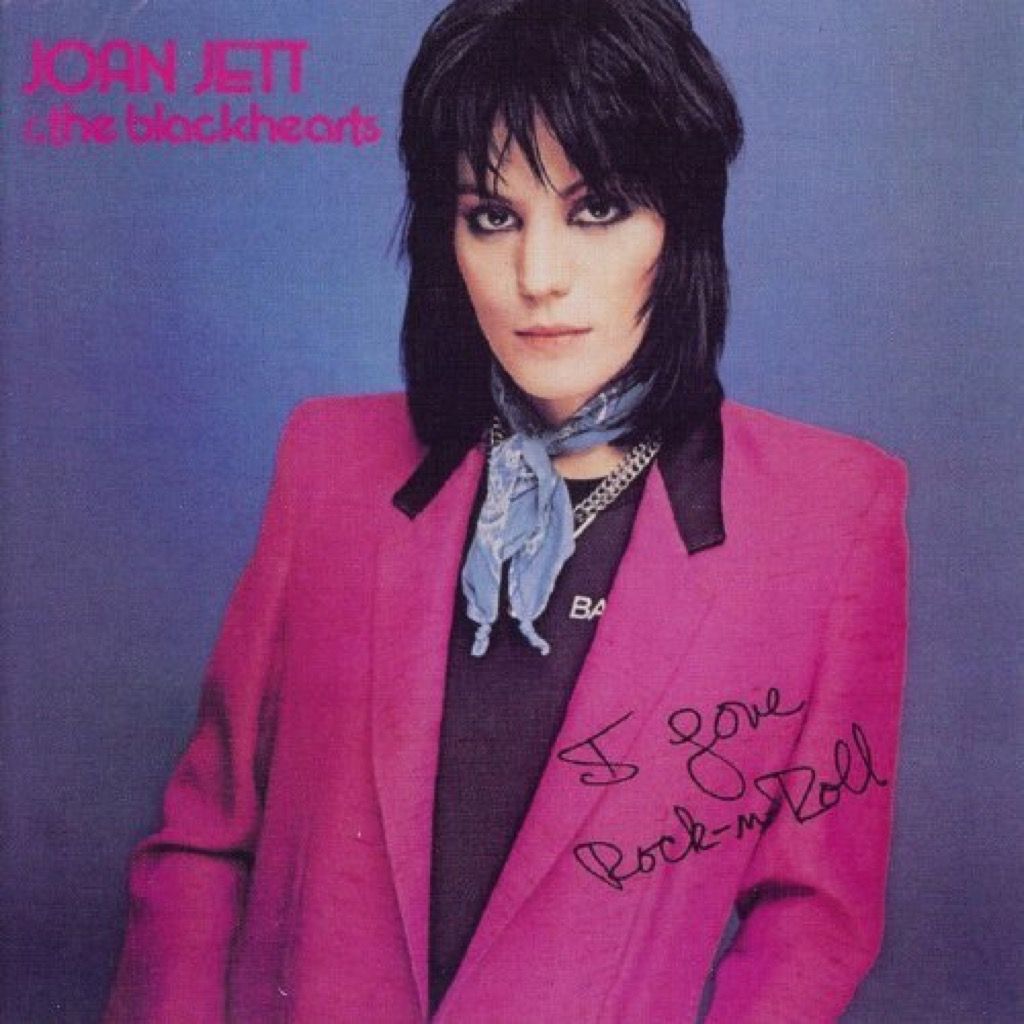
First recorded by little-known English band The Arrows, Joan Jett's version of "I Love Rock 'n' Roll" became a definitive statement for the singer, going platinum after commanding the top of the charts for seven weeks in 1982.
Listen here
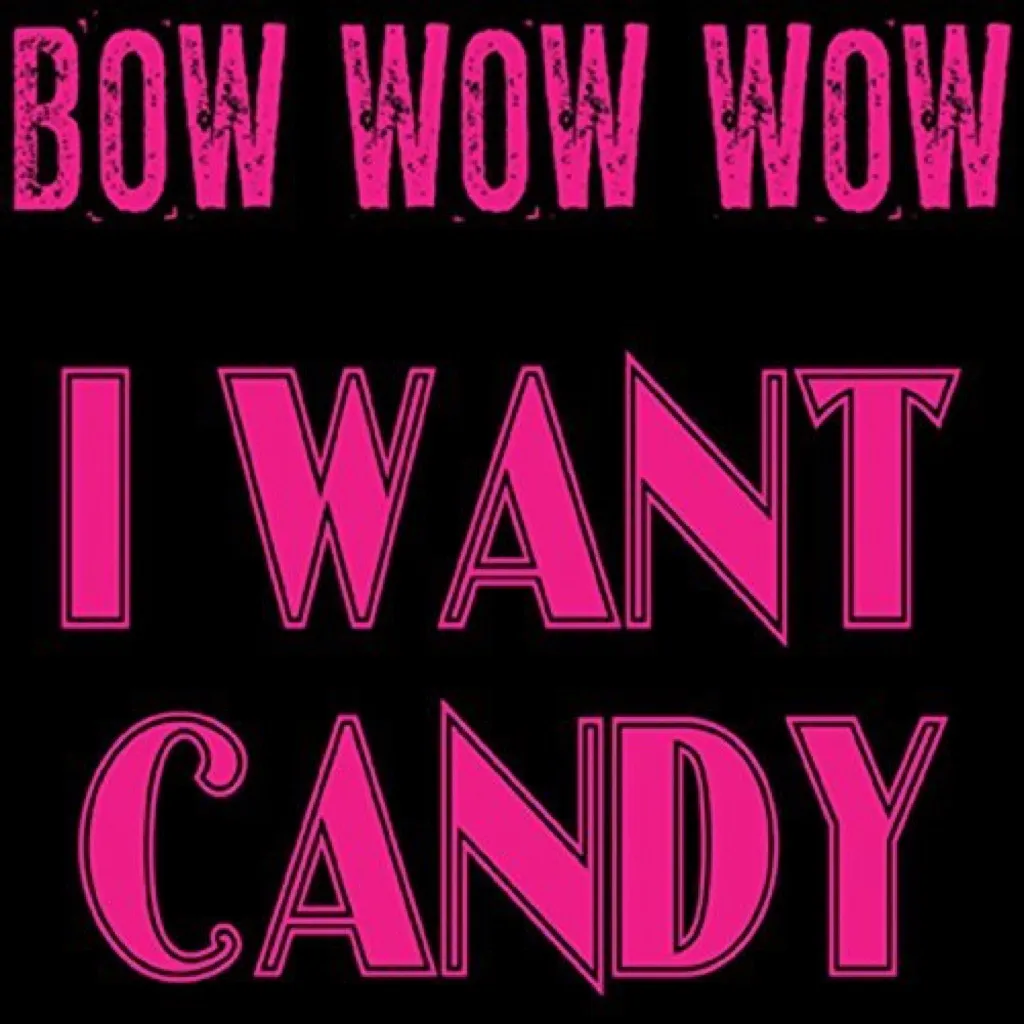
With an infectious Bo Diddley shuffle and primal beat, this bubblegum classic by The Strangeloves was given new life when Bow Wow Wow released their version in 1982. The group's singer, Annabella Lwin, was only 15 when the hit spun into heavy rotation on MTV.
Listen here
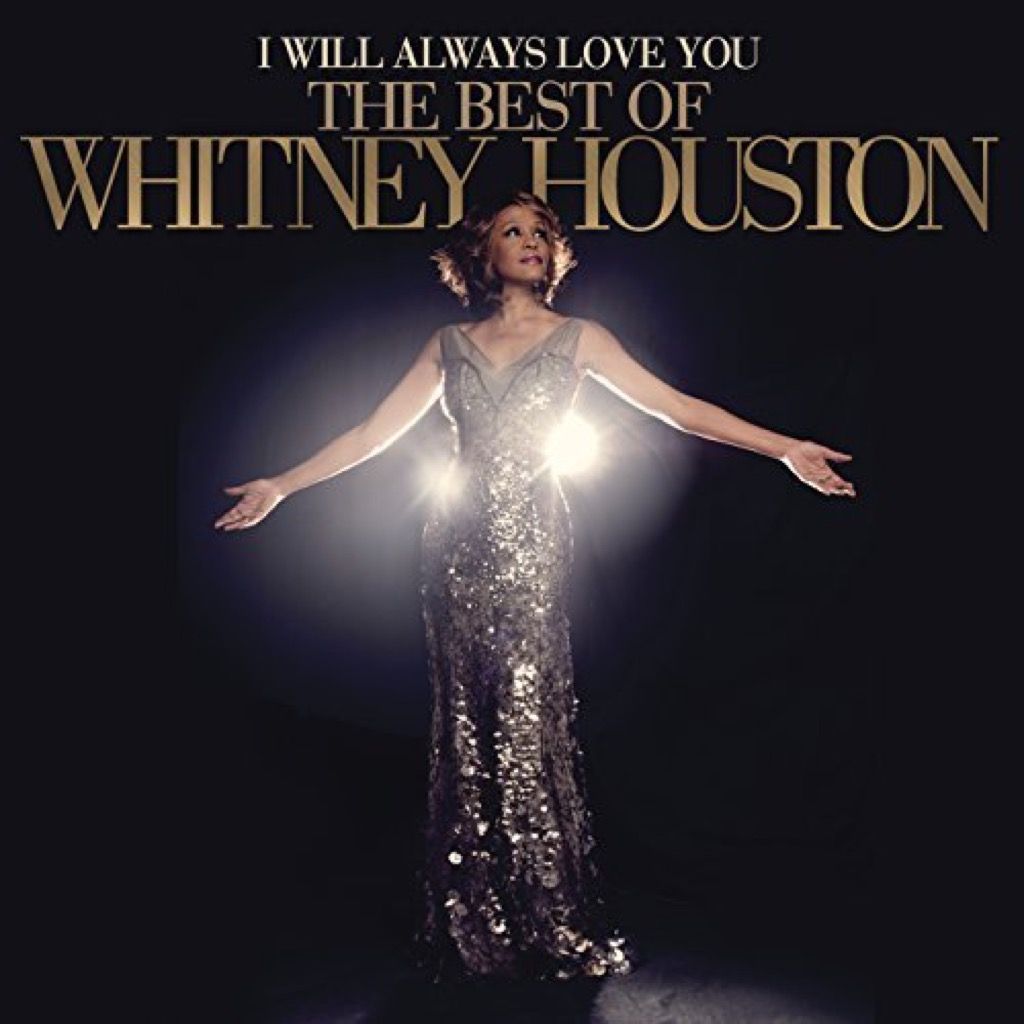
This cover was record for the 1992 film The Bodyguard, in which Whitney Houston also starred. Her epic vocals made Dolly Parton's already beautiful and chart-topping song the best-selling single by a female singer ever.
Listen here
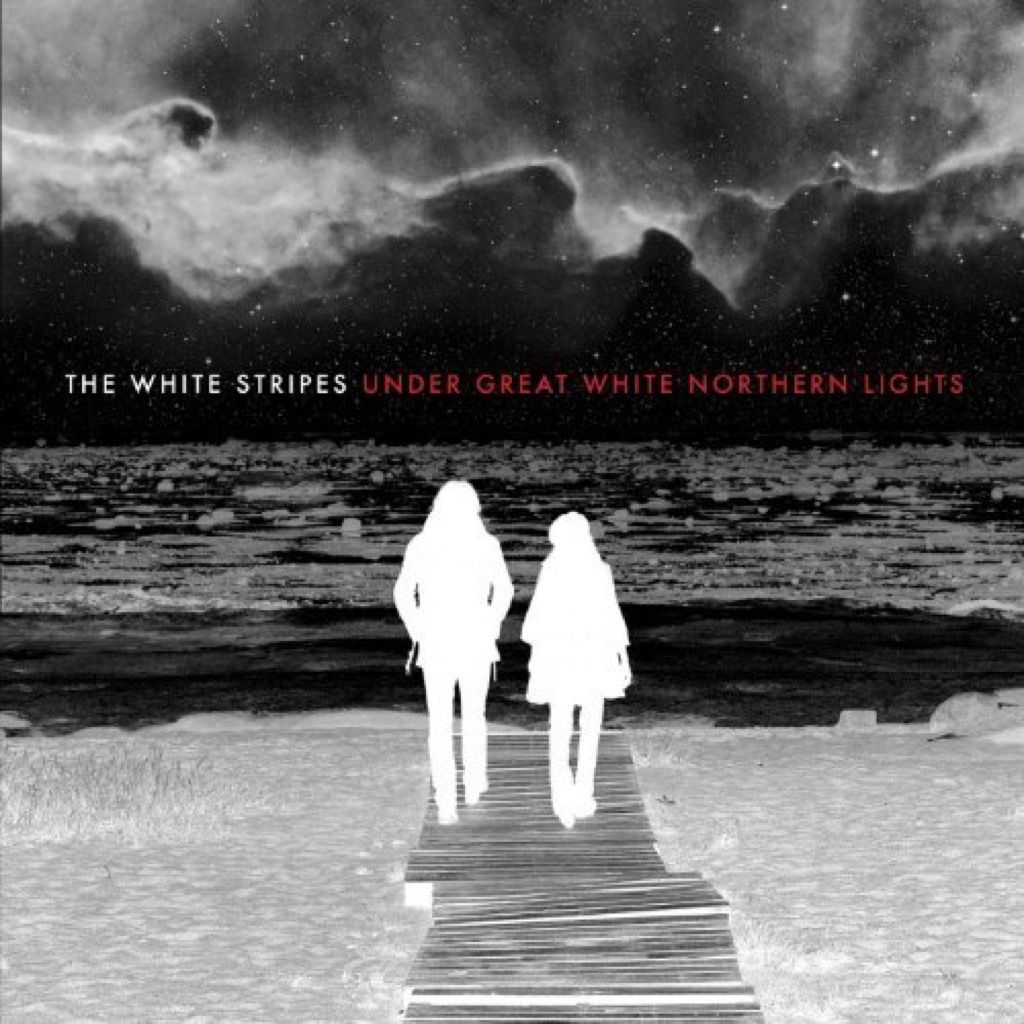
A Rolling Stone poll named The White Stripes' cover of Parton's timeless, aching "Jolene" one of the greatest remakes ever. Jack White, singing from the feminine perspective without a trace of irony, brings down the house in his epic rendition of a country classic.
Listen here
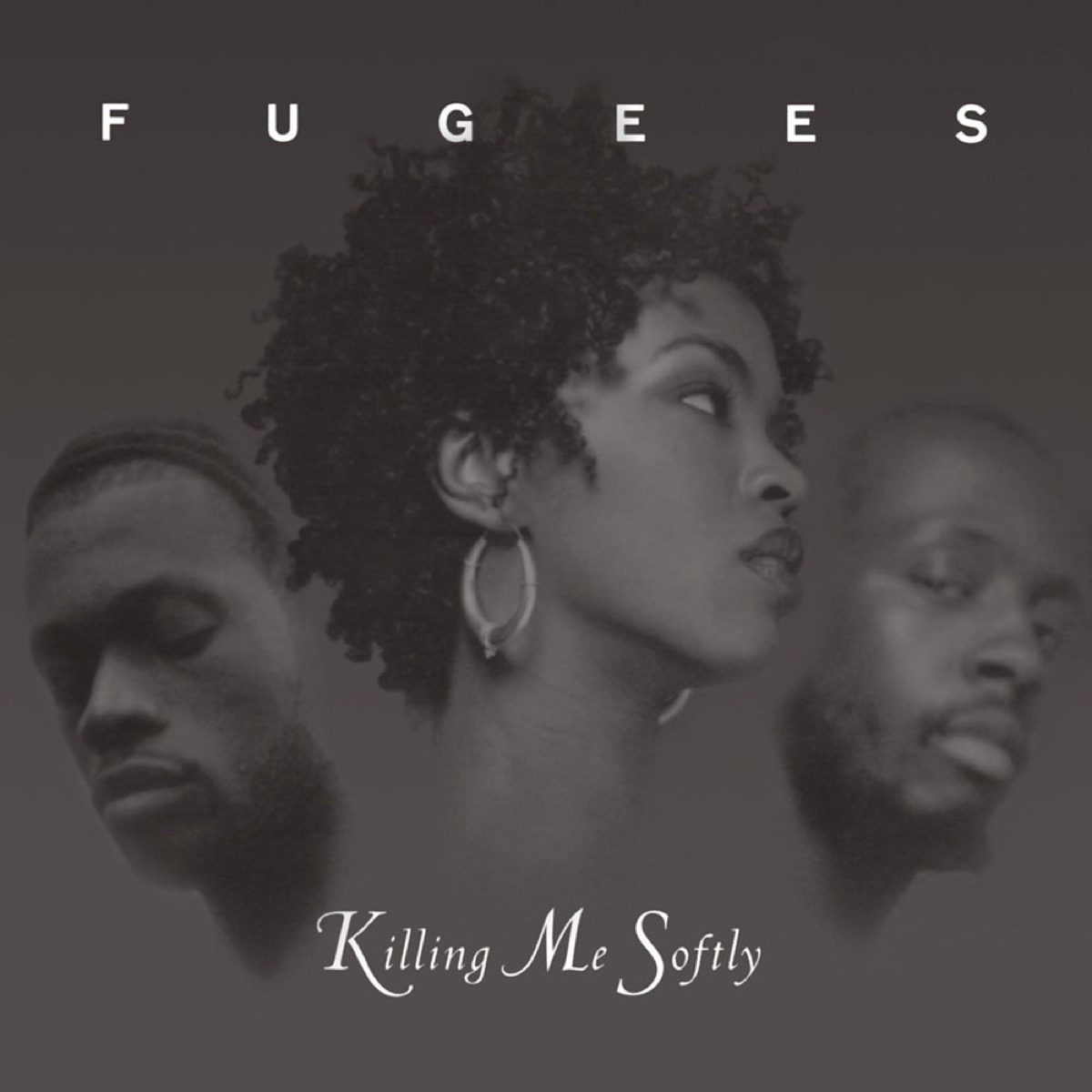
While Roberta Flack's original is flawless, Lauryn Hill and crew give this classic '70s ballad new life with stunning vocals and reggae-imbued soul.
Listen here
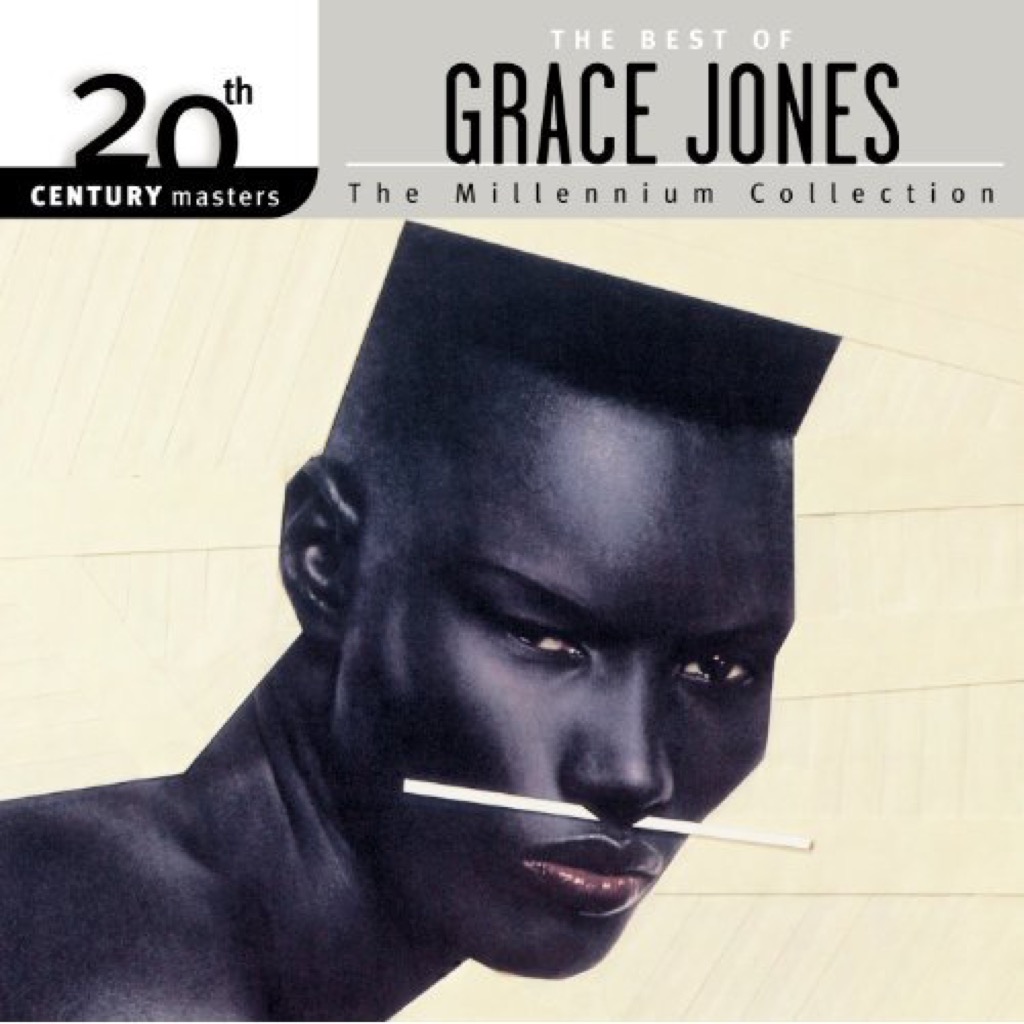
Jamaican singer Grace Jones' hard-edged, urban sound was one of the coolest acts in '77. With her adaptation of Édith Piaf's signature song (from way back in 1945), Jones displayed her softer, jazzy side, making "La Vie En Rose" (Life in Pink) an international hit all over again.
Listen here
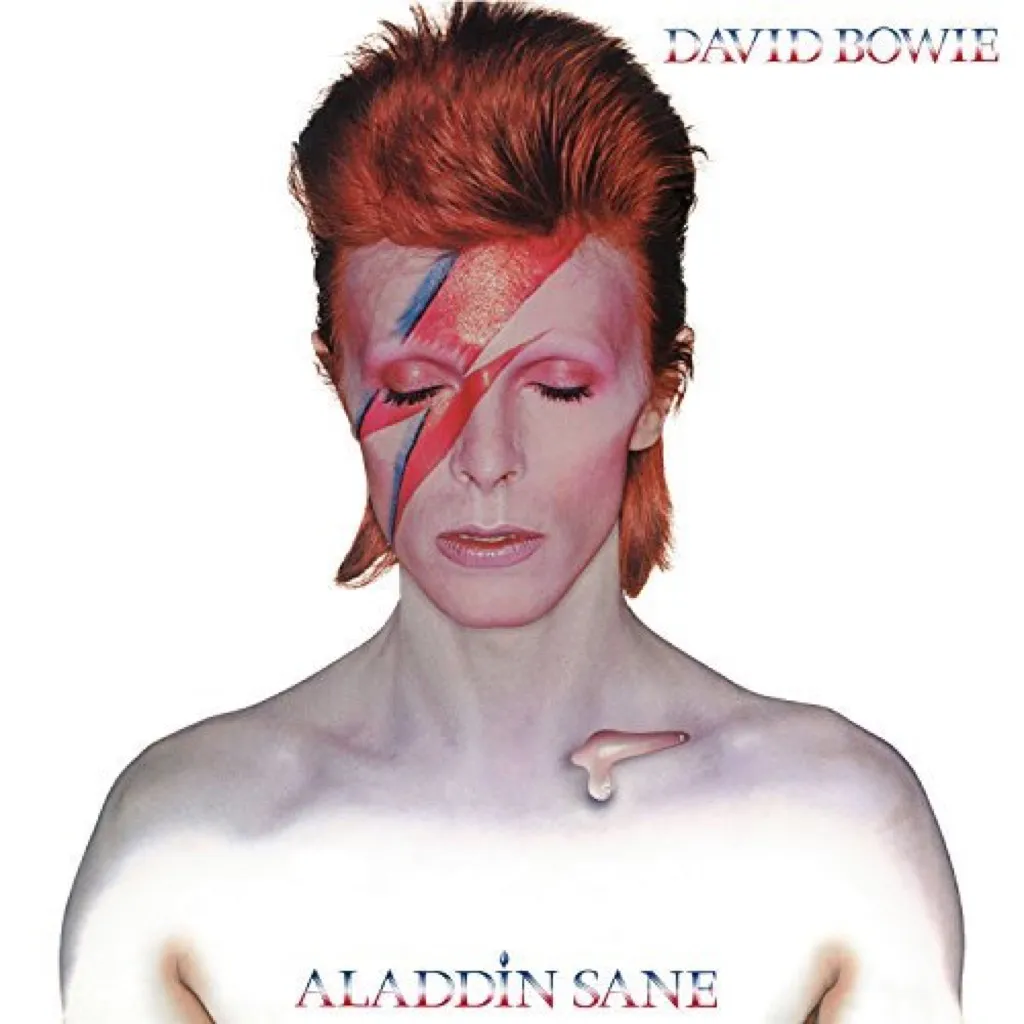
While this playful little Stones number was a provocation to prudes everywhere in 1967, David Bowie's raunchier glam rendition arrived as if it was from the future, infused with gender-bending sexual bravado.
Listen here
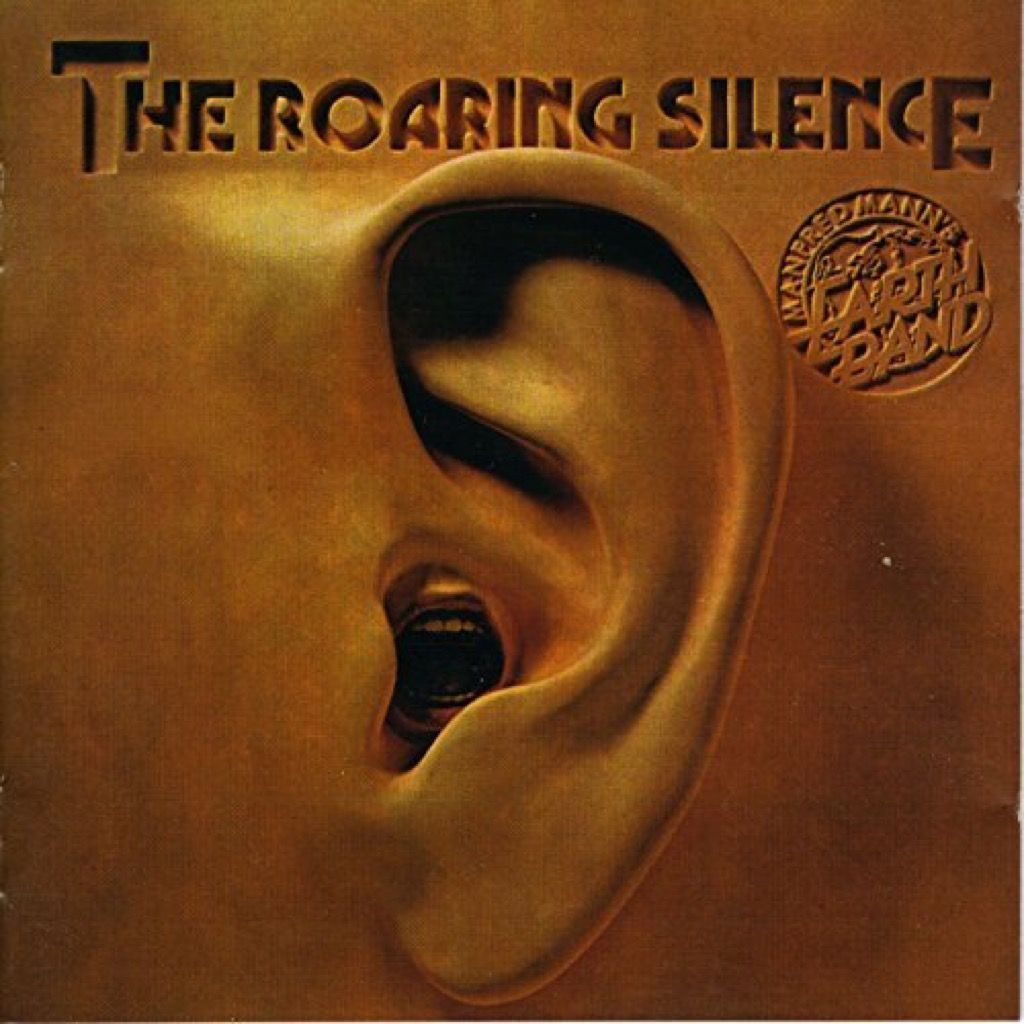
The first song and single from Springsteen's seminal 1973 album Greetings From Asbury Park, "Blinded by the Light" never made the charts until Manfred Mann's Earth Band released their take in 1976. And its mangled lyrics were widely misunderstood in the remake. "Cut loose like a deuce," (a reference to deuce coupe hot rods) was changed to "revved up like a deuce," and misheard as "wrapped up like douche." Springsteen later mused that it was the cover version's allusion to a feminine hygiene product that popularized the song.
Listen here
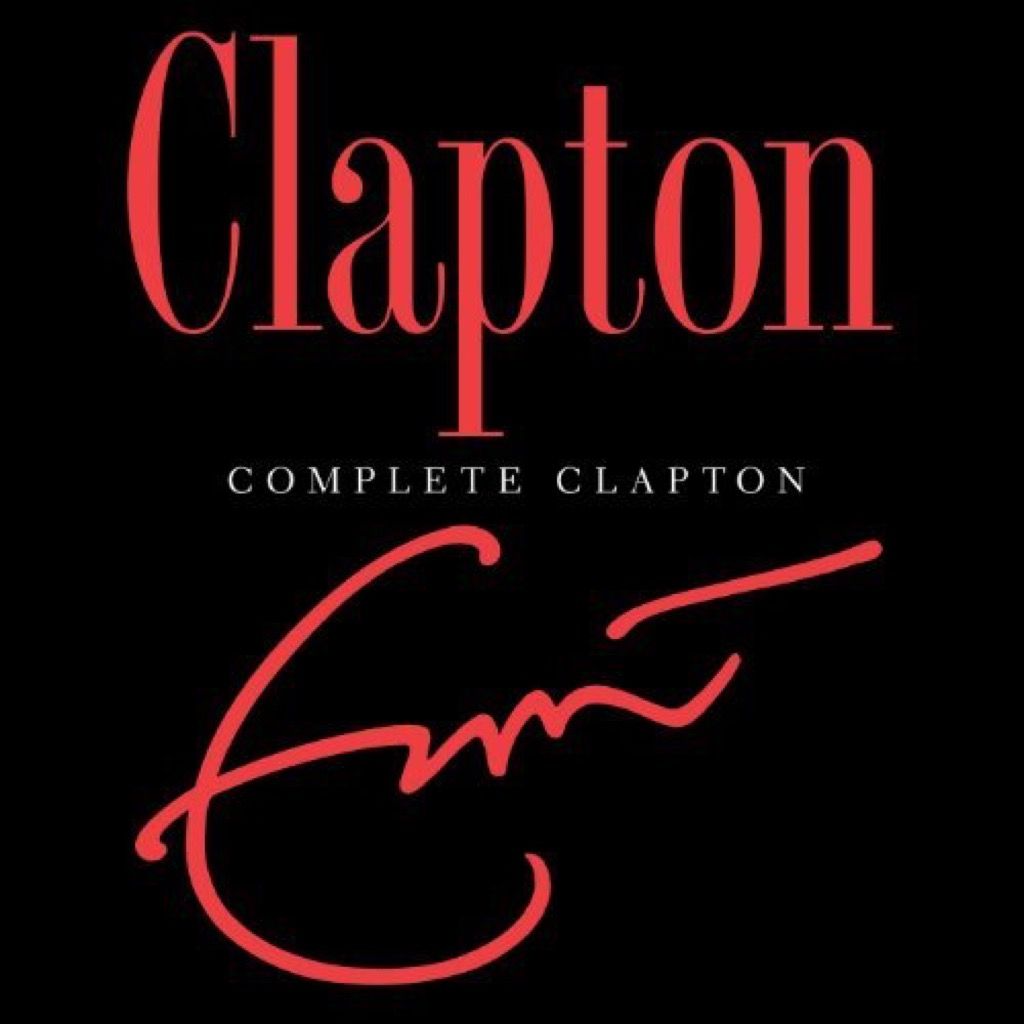
Bob Marley's masterpiece is faithfully reproduced on Eric Clapton's monumental 1974 album, 461 Ocean Boulevard, though it packs a bigger punch. The song was one of several examples of reggae's growing influence on British and American pop music.
Listen here
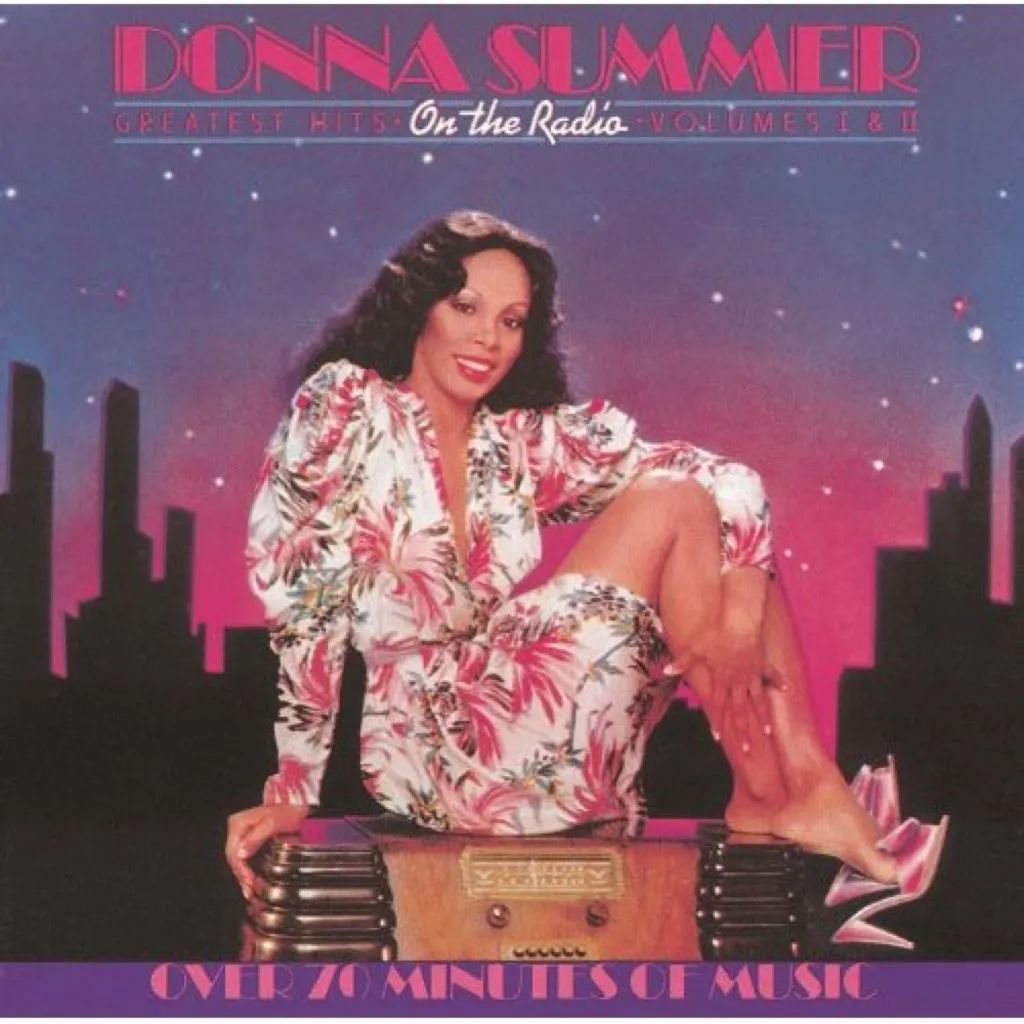
Repurposing some of the most beguiling lyrics ever, about an expiring love affair, producer Giorgio Moroder guided the extraordinarily gifted Donna Summer to multi-million platinum status with this cover in 1978.
Listen here
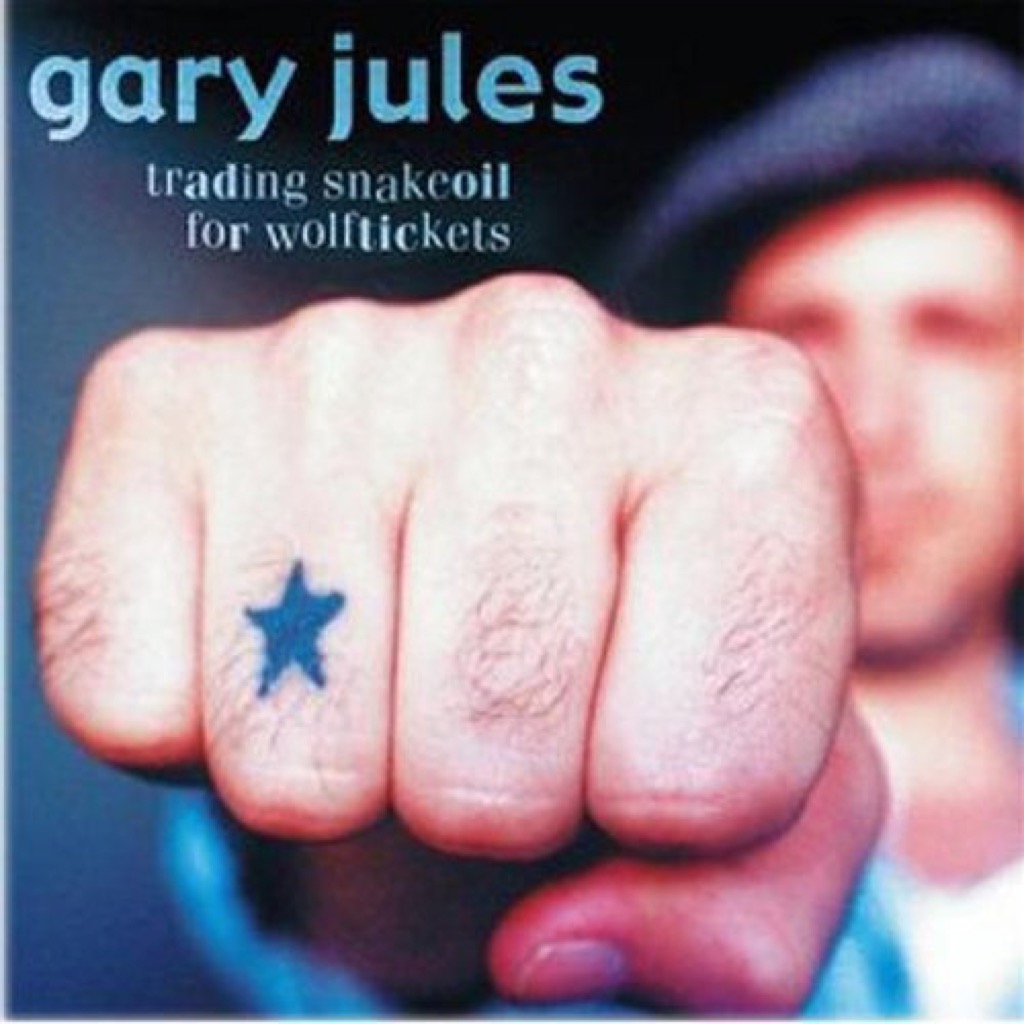
Re-imagined by Gary Jules and Michael Andrews, the Tears for Fears '80s hit became a brooding, down-tempo piano ballad famously featured in the 2001 cult-classic Donnie Darko.
Listen here
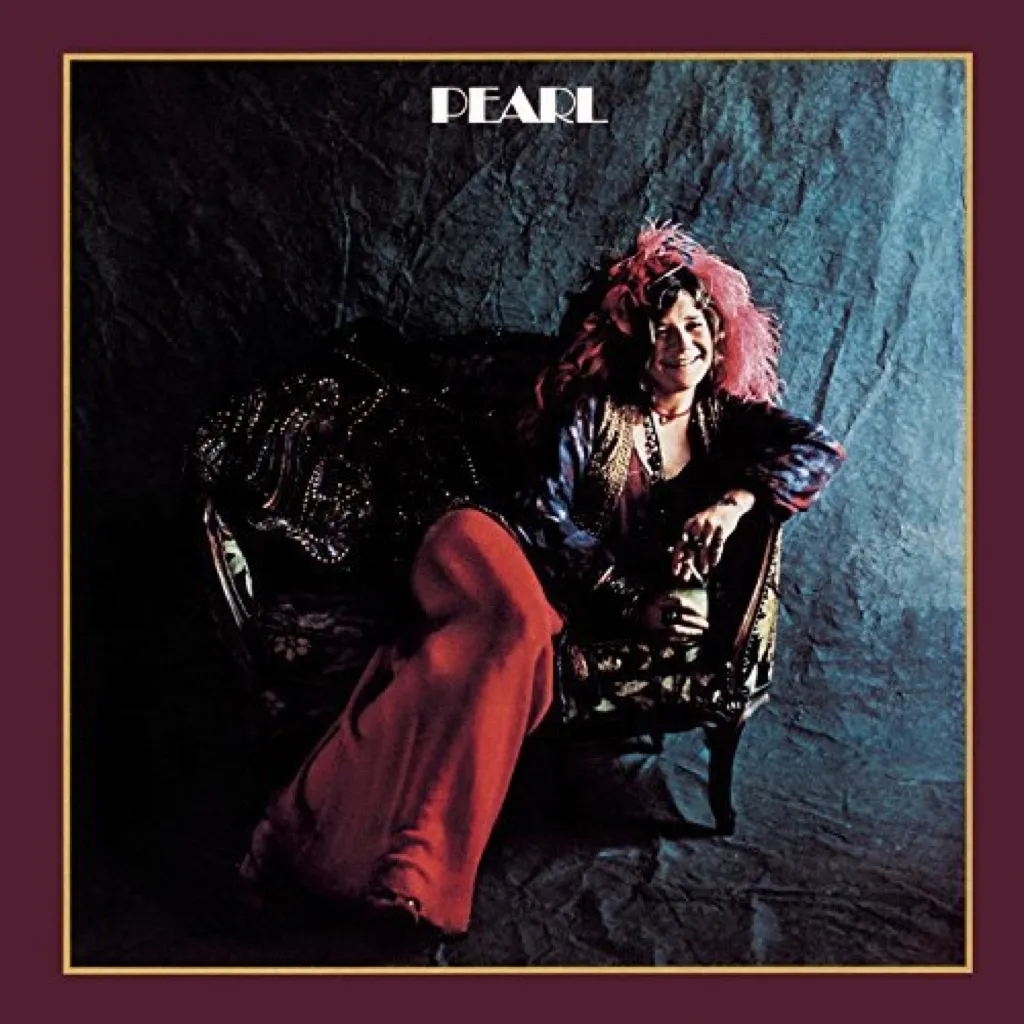
This song crystalizes the melancholy and wanderlust of its era, weaving the tale of young drifters hitchhiking across America. Janis Joplin's searing execution gave it wings to become the anthem for a generation.
Listen here
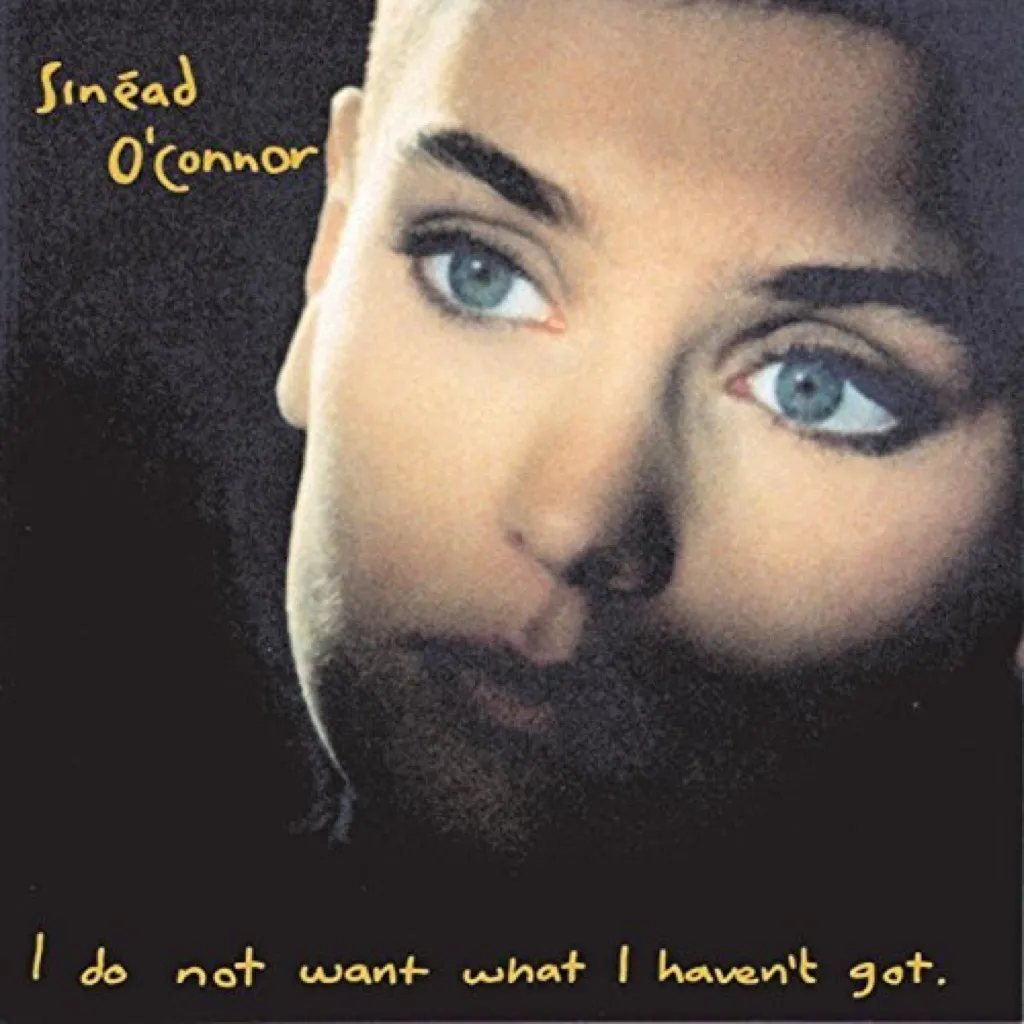
"Nothing Compares 2 U," a monster hit for Irish chanteuse Sinead O'Connor, is perhaps the ultimate breakup song. It was written by Prince for one of his side projects, but O'Connor delivers an emotional performance that is impossible to resist. Just try to hold back the tears.
Listen here
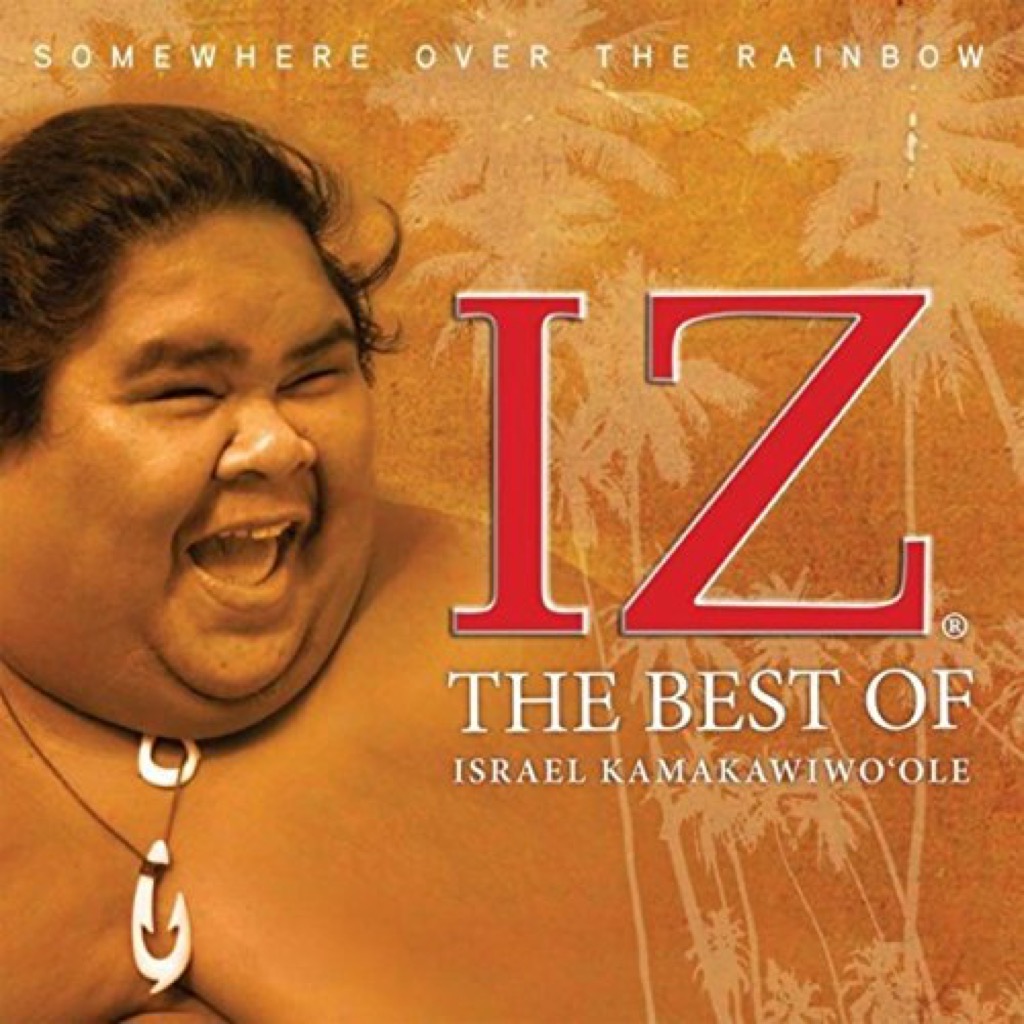
Hawaiian musician Israel Kamakawiwo'ole, with only his voice and his ukulele, redefined a beloved classic.
Listen here
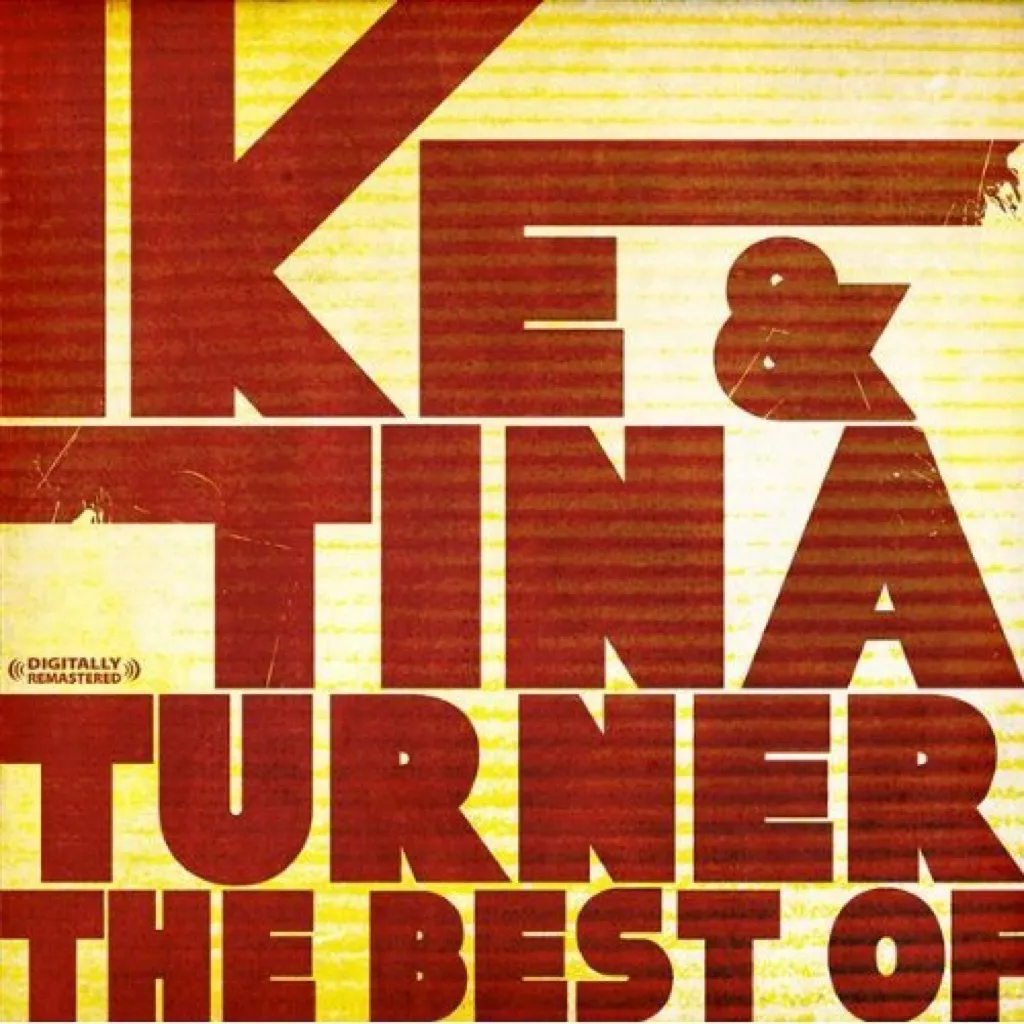
Tina Turner lays it down from the very start: "We never, ever do nothin' nice and easy. We always do it nice. And rough." Then she proceeds to rip it to shreds. It's a song so seared into our collective consciousness that it taps into a primal urge to get up and dance.
Listen here
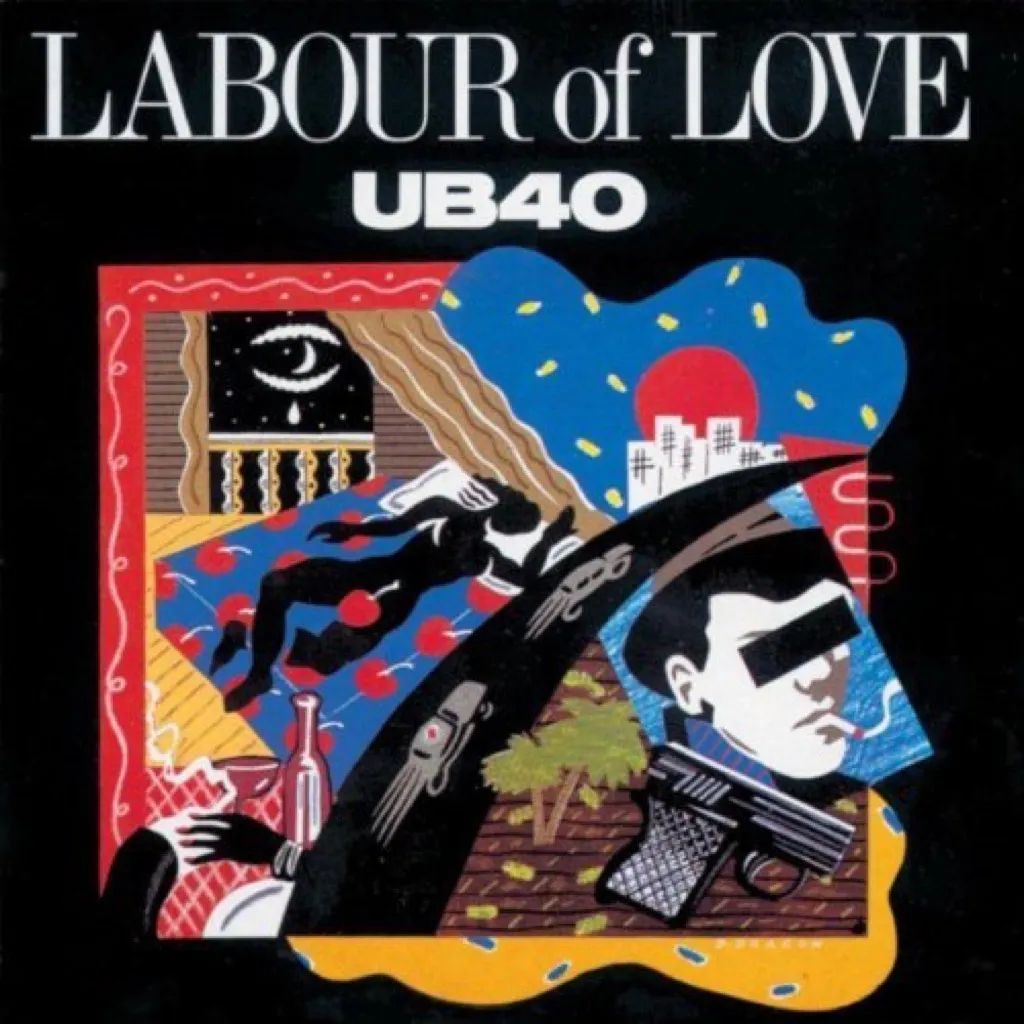
UB40's reggae-fied cover of Diamond's somber acoustic ballad is an ode to drinking as a way to forget your romantic woes—needless to say, it was a hit.
Listen here
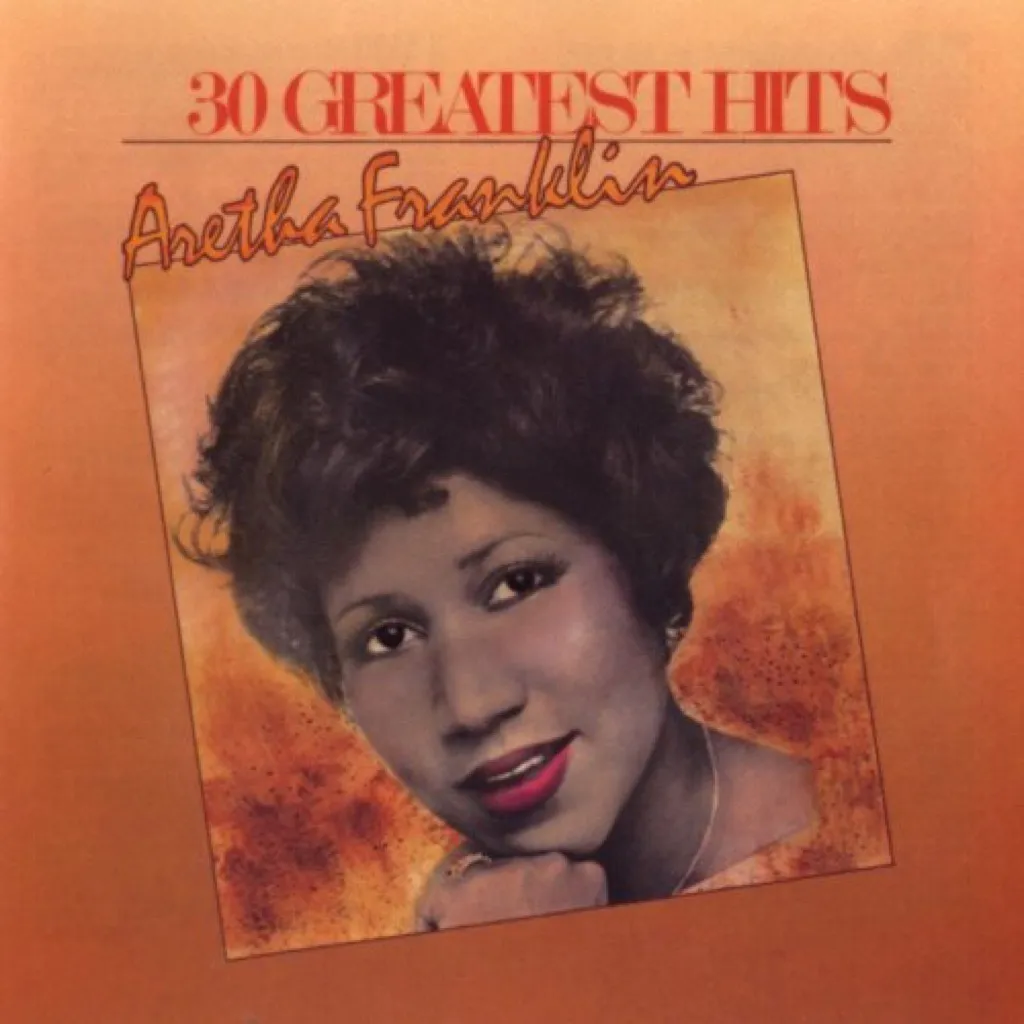
"Respect" marked Aretha Franklin's breakout as a major force in pop music and became a clarion call for feminism that still resonates today.
Listen here
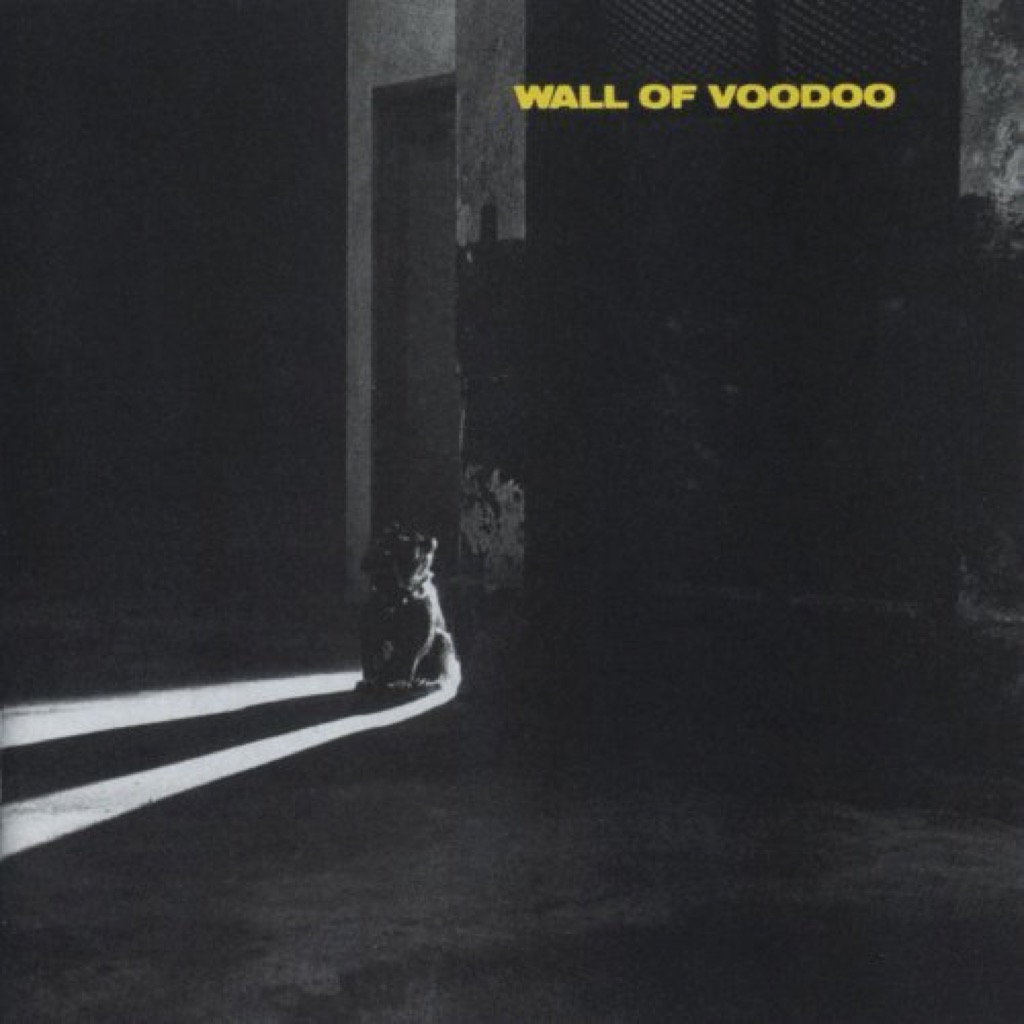
Johnny Cash's iconic song invites stylistic interpretation, though none as memorable as this acerbic, industrial punk-rock, synthesizer-driven spaghetti western take on the country classic.
Listen here
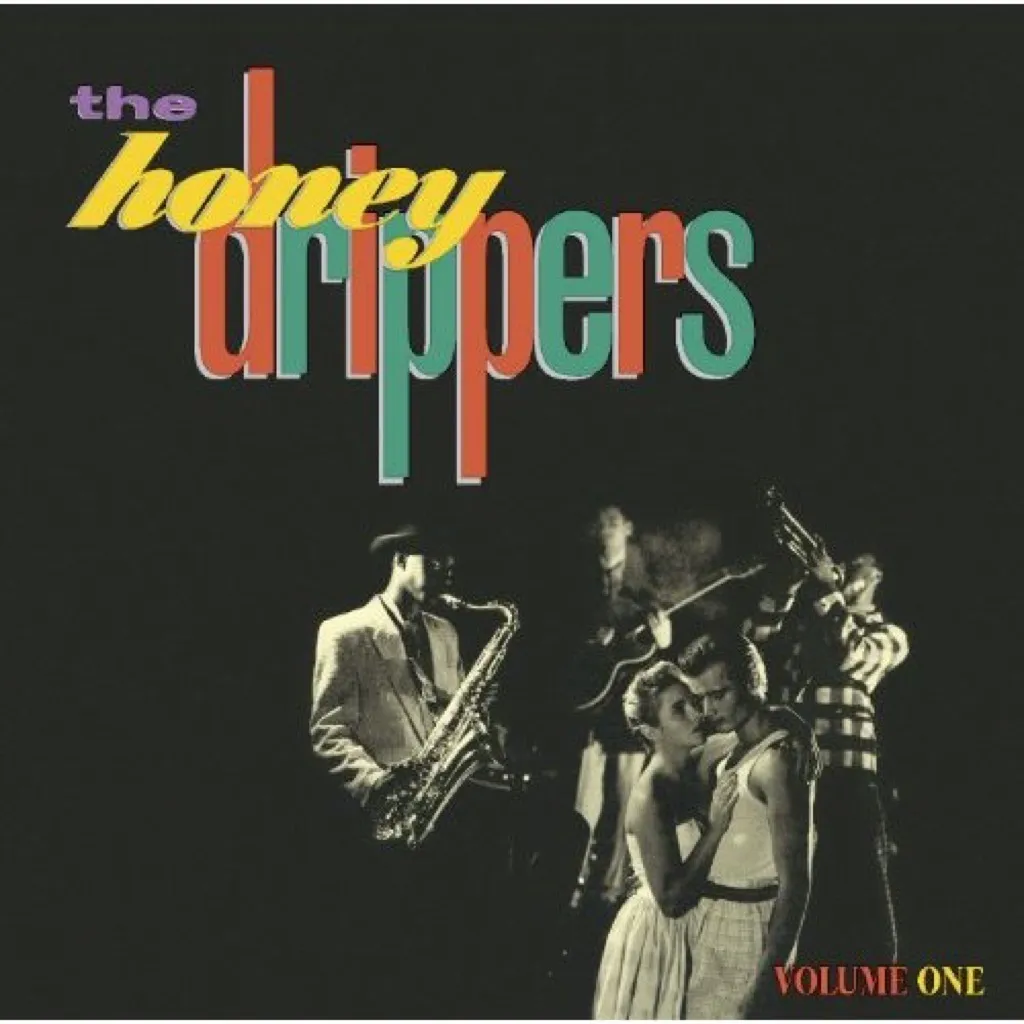
Former Led Zeppelin frontman Robert Plant crooned a faithful rendition of this '50s R&B classic with his band The Honeydrippers, comprised of an all-star lineup of musicians, including former Yardbirds member Jimmy Page and Jeff Beck.
Listen here

Tori Amos defanged Nirvana's signature anthem, rendering its gnashing, tortured disaffection into a tender but desperate plea, stripped of all accompaniment but her piano.
Listen here
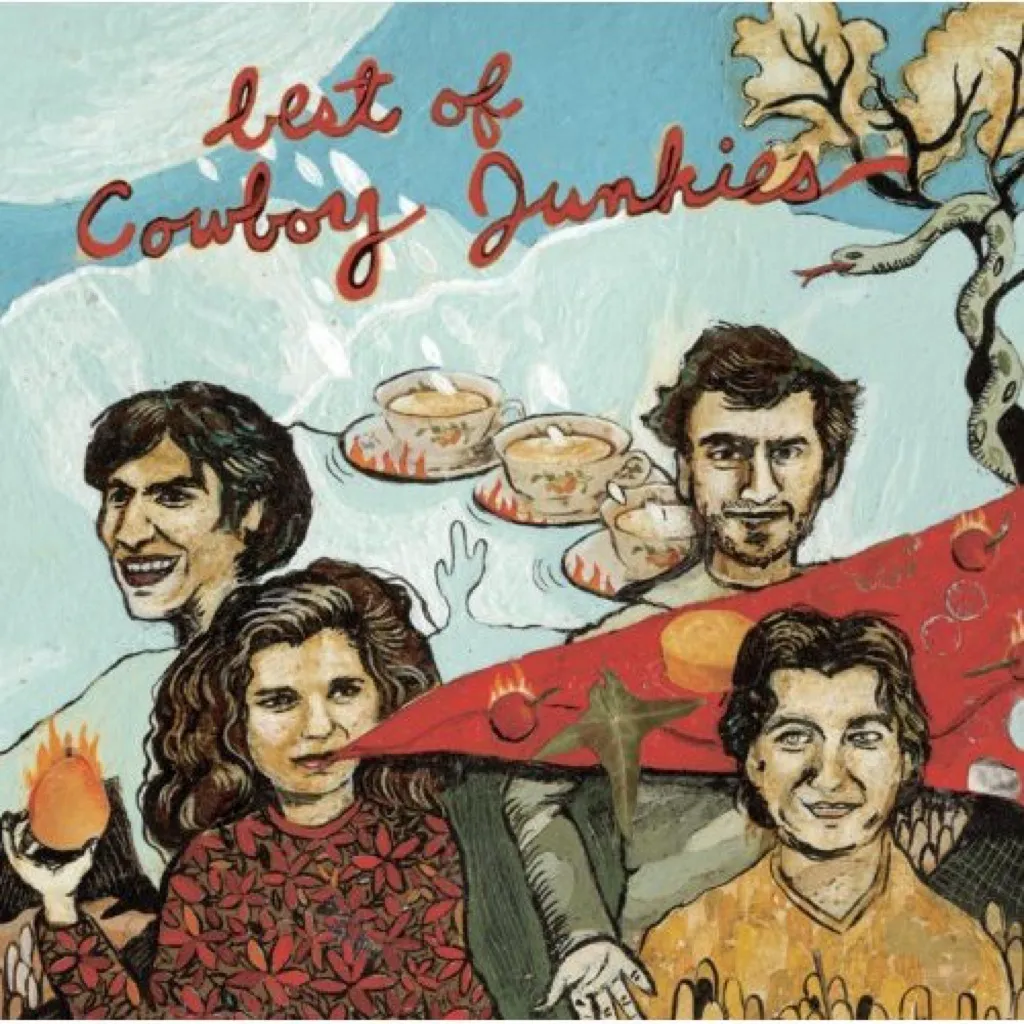
The Cowboy Junkies' best-loved track springs from their seminal album, The Trinity Session. It was recorded in one day around a single microphone in a Toronto church. Singer Margo Timmins delivers a dreamy, drowsy take on Lou Reed's 1969 classic.
Listen here
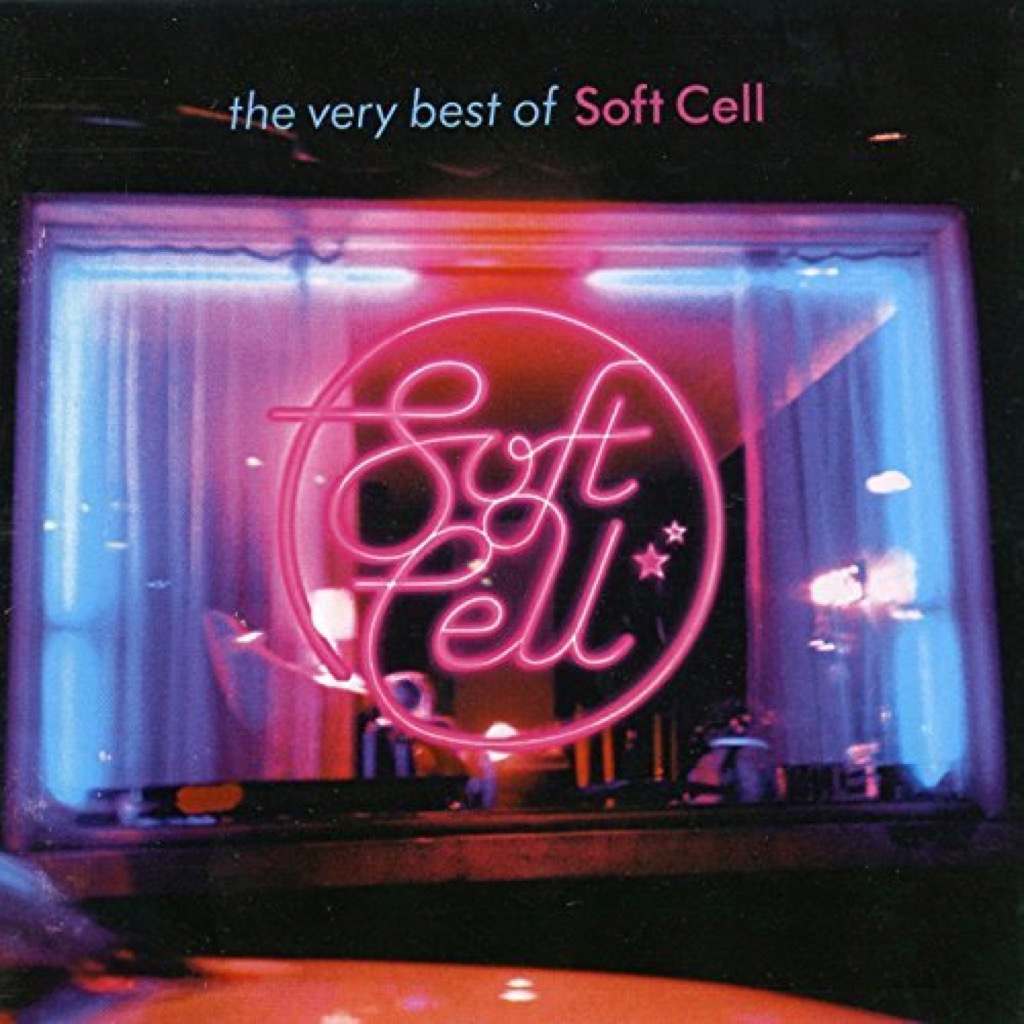
Soft Cell's dark take on the Gloria Jones classic about escaping a toxic relationship struck a chord with legions of listeners.
Listen here
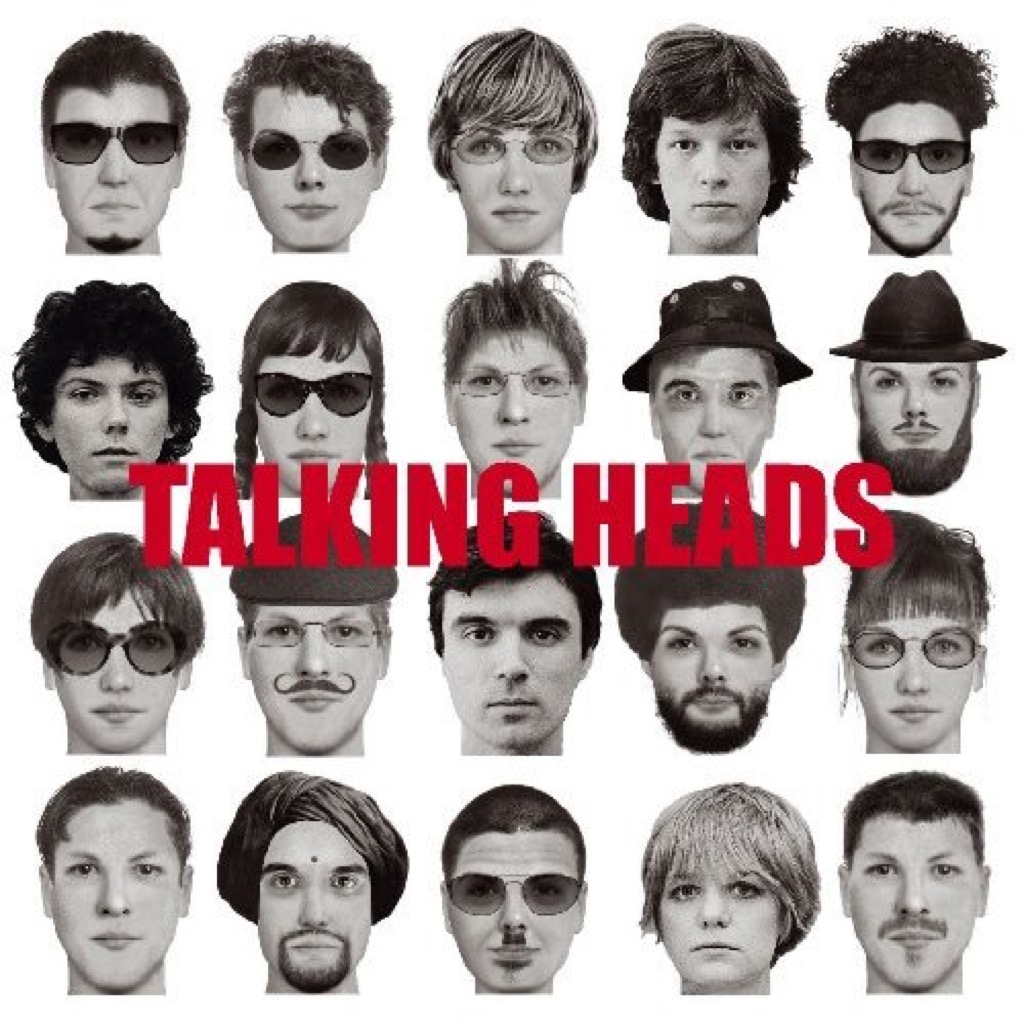
In the liner notes on their 2004 compilation, The Best of Talking Heads, David Byrne wrote that "Take Me to the River" is "a song that combines teenage lust with baptism." Co-produced by Brian Eno, the track established the thoroughly original band as a powerhouse in pop music.
Listen here
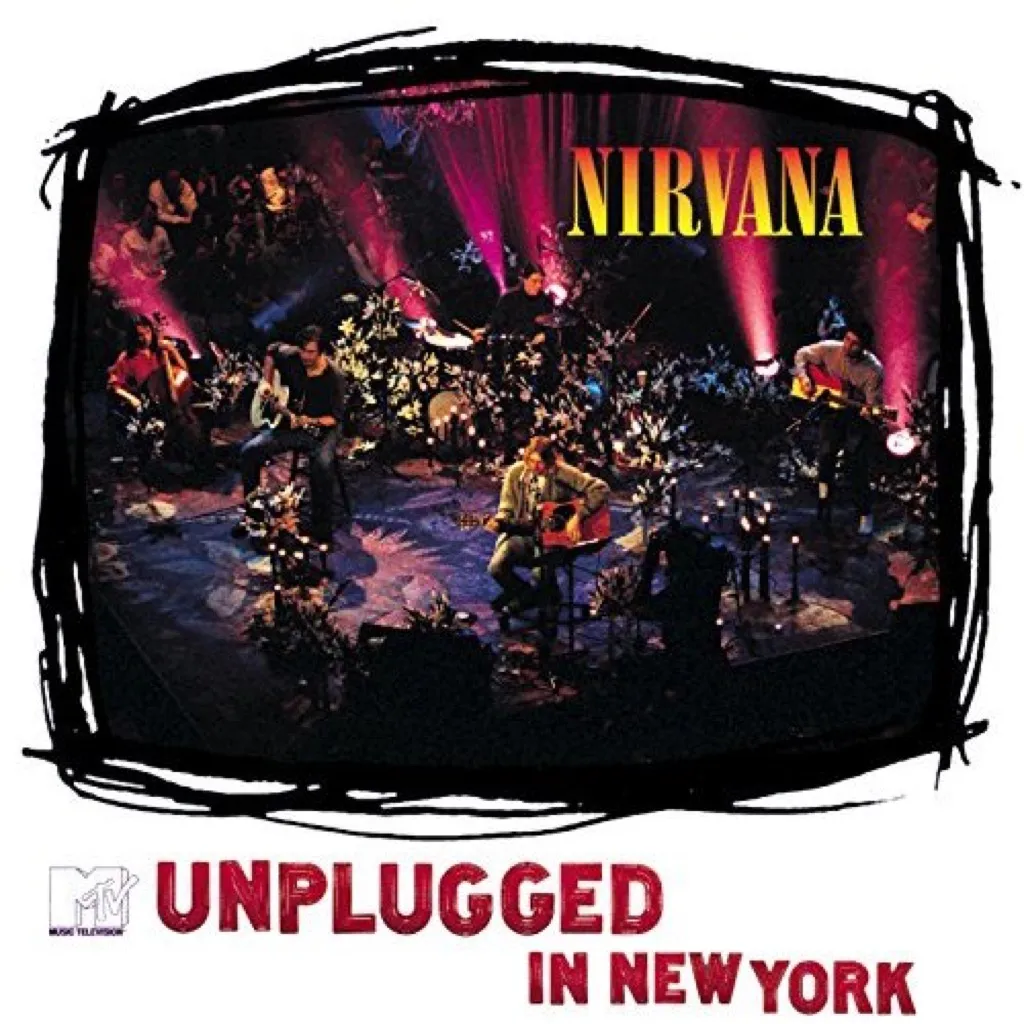
Nirvana's haunting, introspective cover track made a surprise appearance in 1993 on MTV's Unplugged—finding new resonance thanks to Kurt Cobain's emotional performance.
Listen here
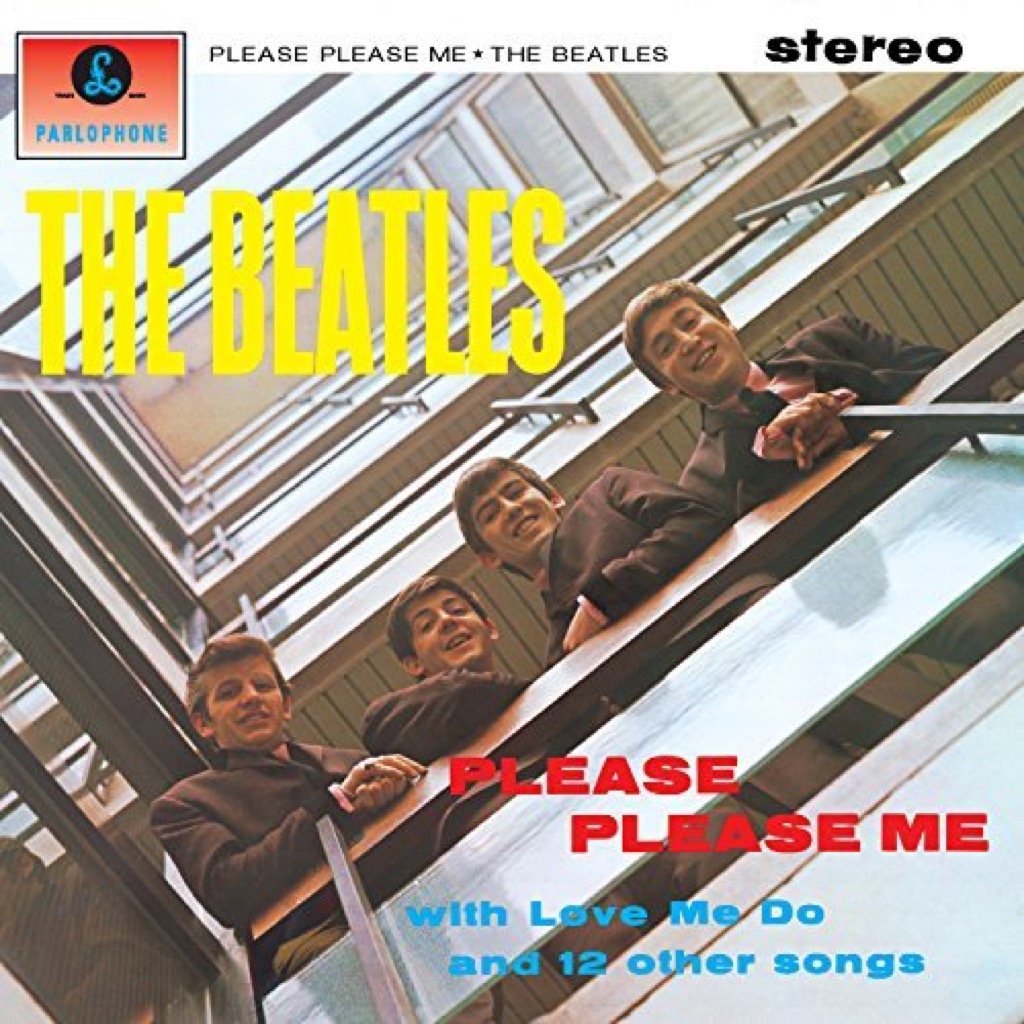
A 1964 hit, "Twist and Shout" was recorded in a single take, with John Lennon suffering a bad cold, which accounts for the song's wonderfully raspy delivery.
Listen here
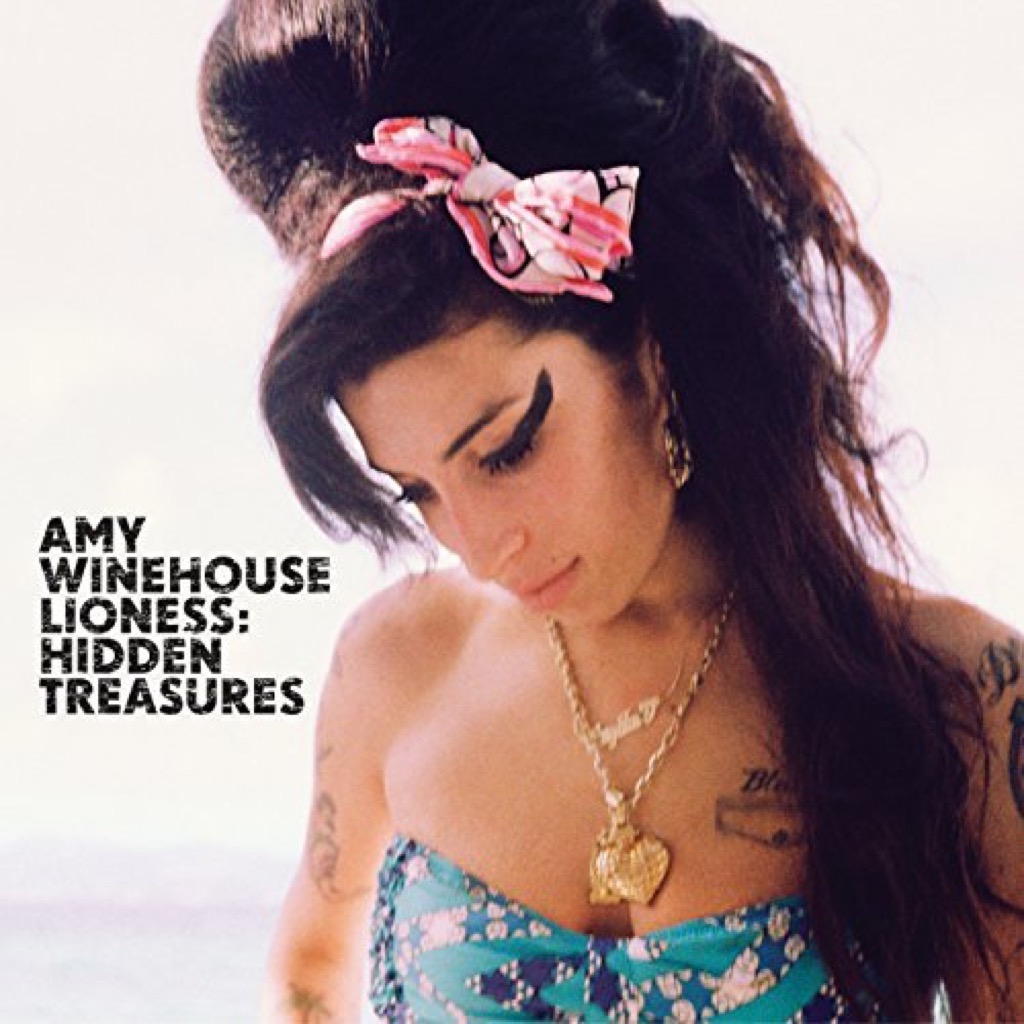
This Zutons original only really came to life after Amy Winehouse put it to tape in the studio with producer Mark Ronson, instantly making the undeniable tune her own.
Listen here
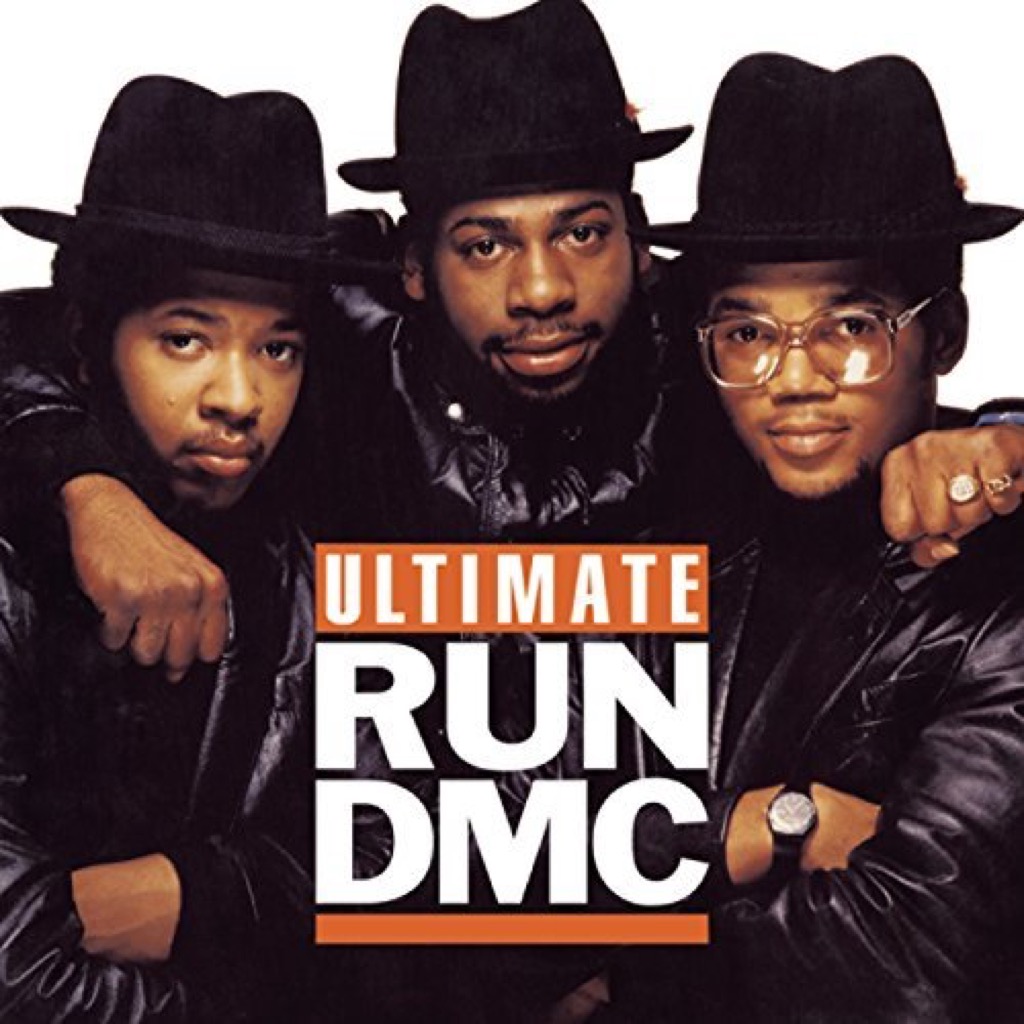
This truly groundbreaking collaboration launched Aerosmith's comeback and set the stage for the continuing dominance of rap on the pop charts. Run-DMC fuses rock and rap with this cover, recording it with the actual band instead of simply sampling the original.
Listen here
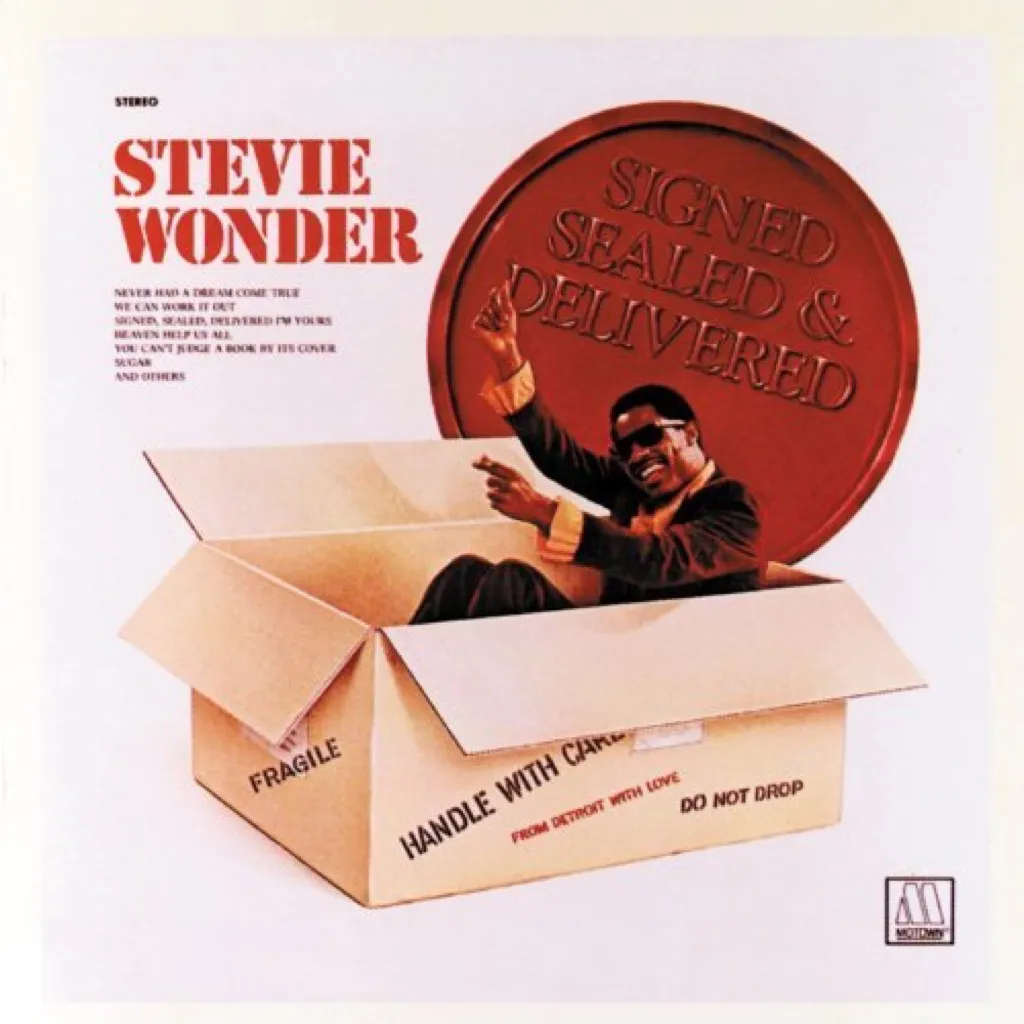
This beautiful song as performed by The Beatles was a plea for reconciliation, expressed with passion and little hope. Conversely, Stevie Wonder's rousing funk version, from his 1970 masterwork Signed, Sealed & Delivered is all about desire and promise.
Listen here
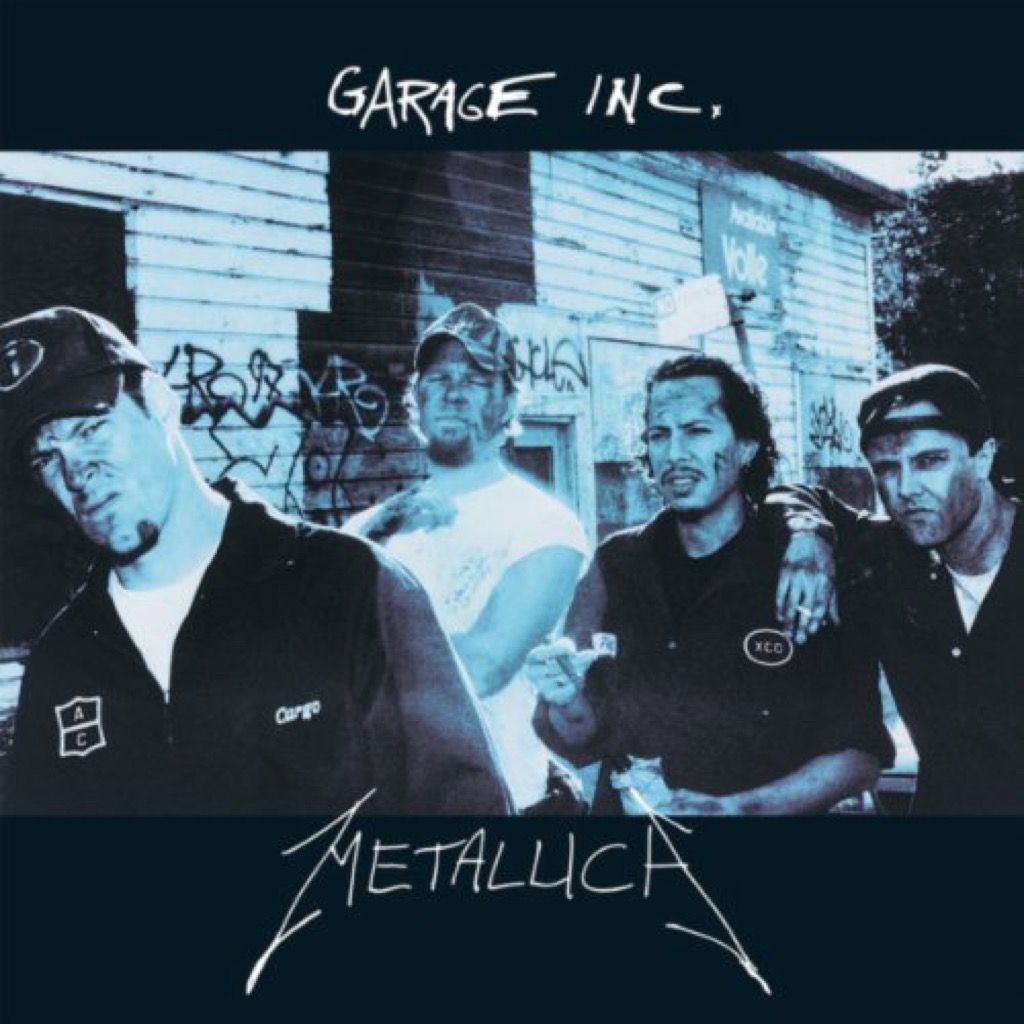
Metallica takes an old Irish folk song earnestly recorded by Dublin's Thin Lizzy and shreds it to bits in this raucous remake.
Listen here
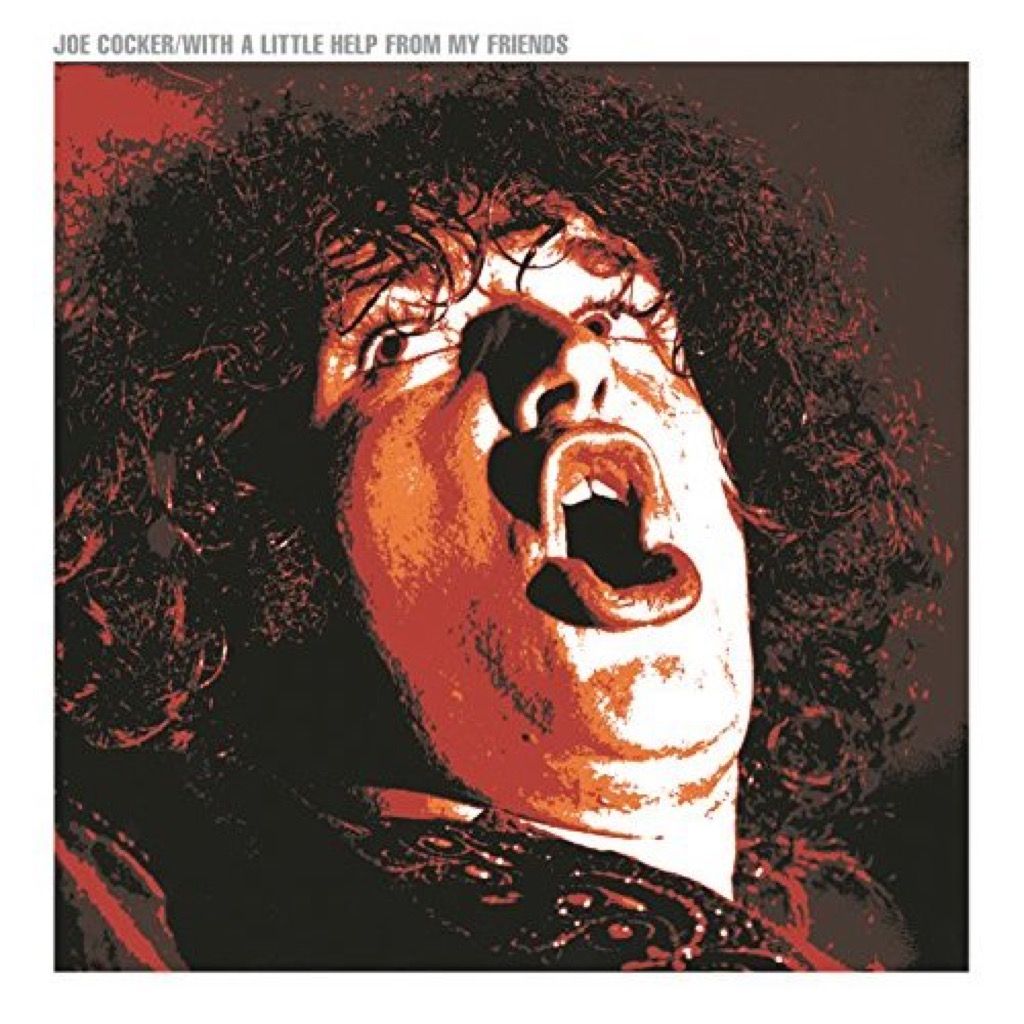
Joe Cocker's combustible performance at Woodstock elevated Ringo Starr's sweet little ditty to become the anthem of a generation.
Listen here
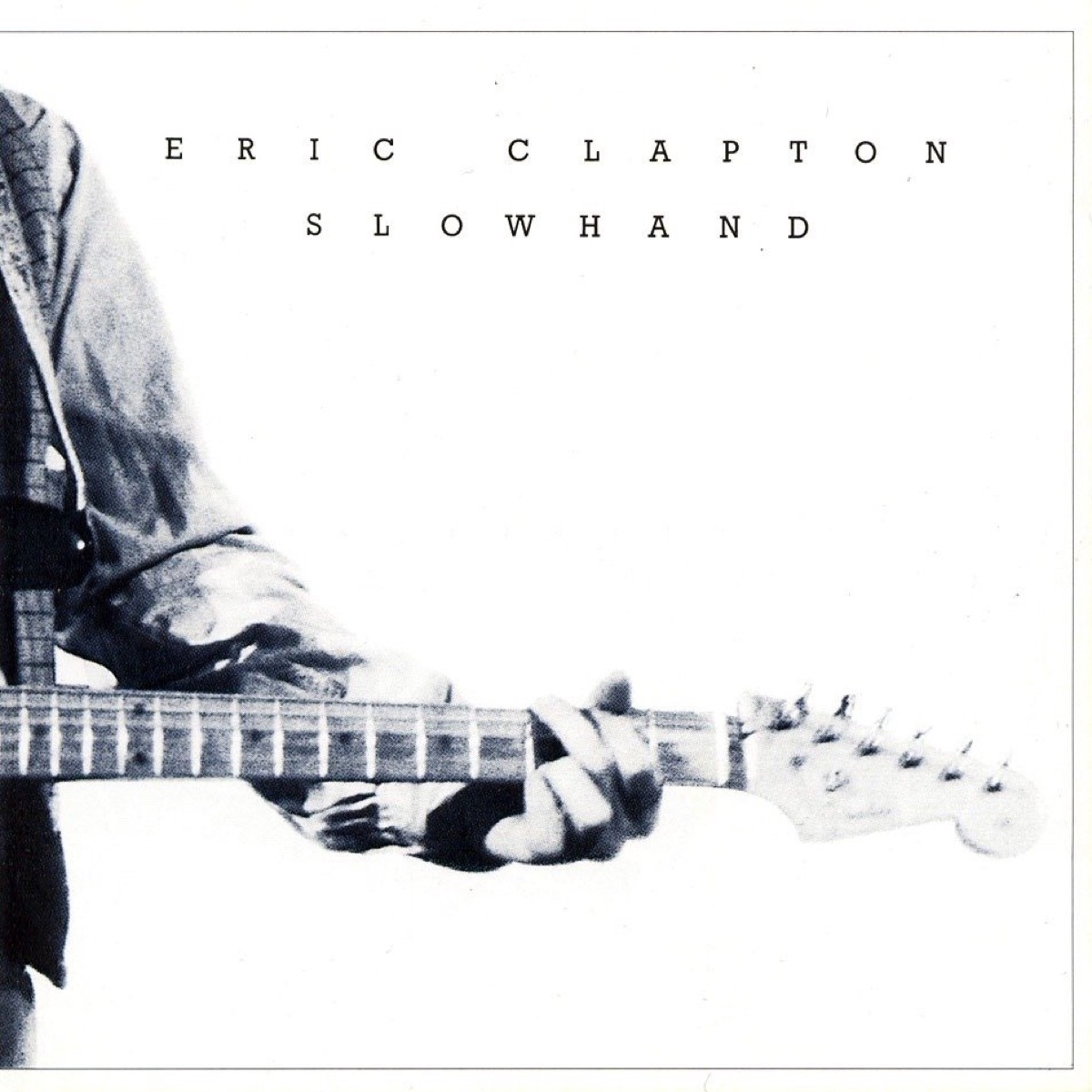
Clapton insisted that, though his 1977 hit sounded like a love song to an illicit substance, it was actually a cleverly disguised anti-drug message. The riff-heavy number became one of Clapton's signature hits, and one of several JJ Cale songs he recorded during that substance-soaked era.
Listen here
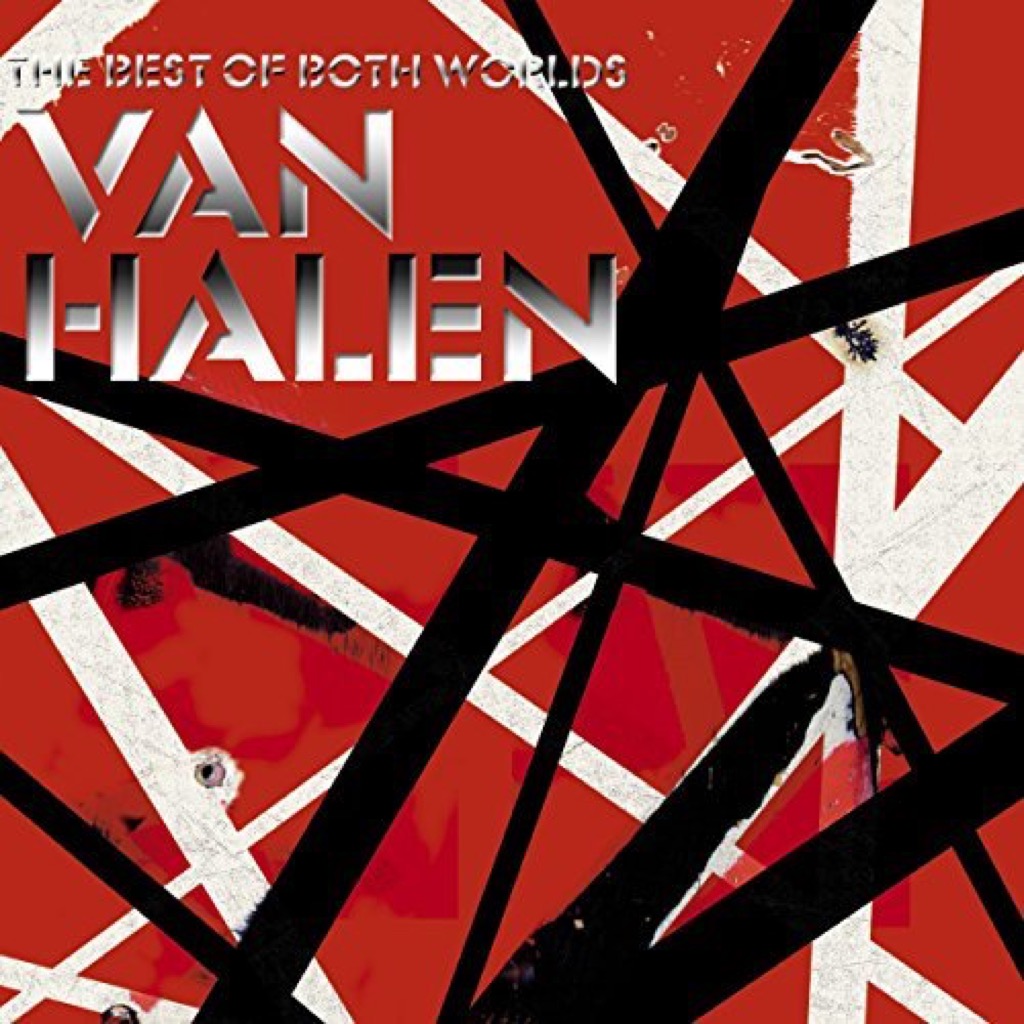
Awesome as The Kinks' original is—the tune was a defining moment of the British Invasion—it instantly became eclipsed by this thundering, new, over-the-top sensation from Van Halen.
Listen here
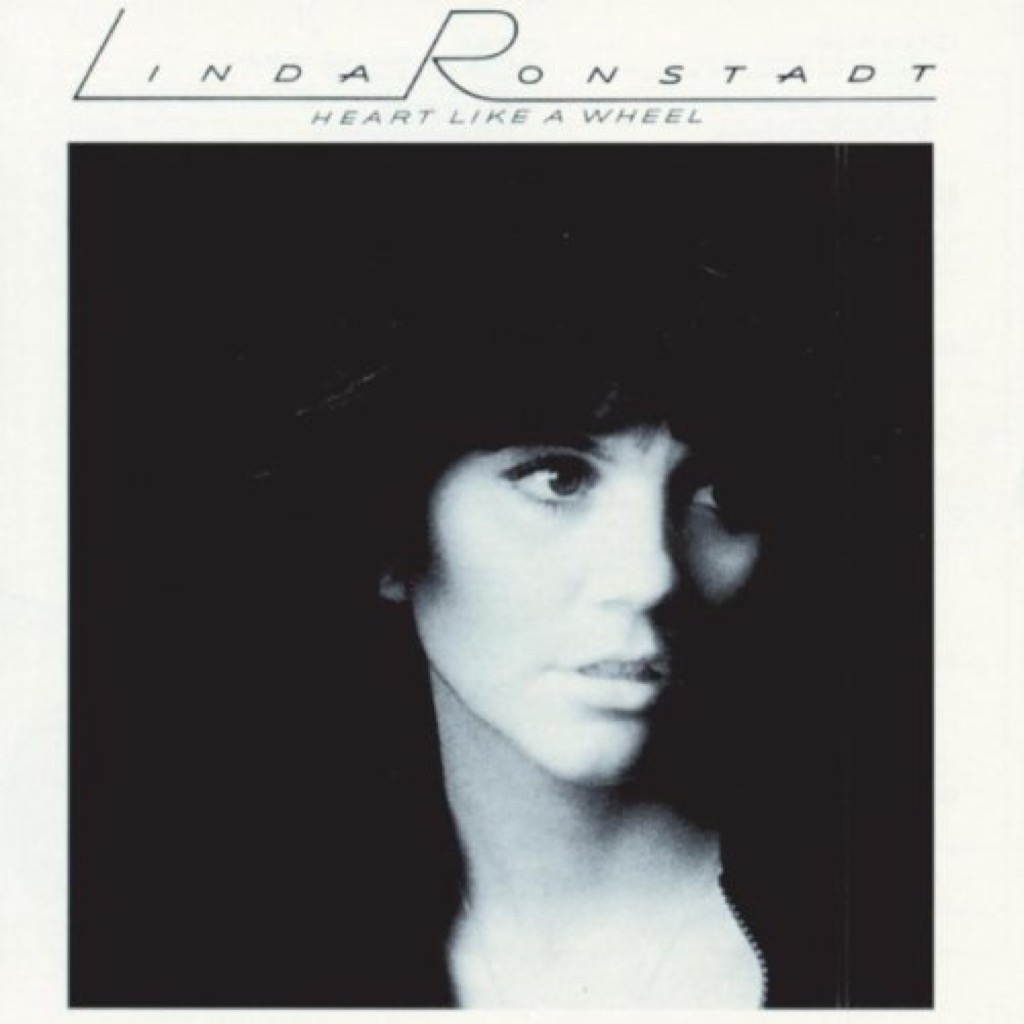
One of the most prolific artists of the 1970s, Ronstadt gave this someone-done-me-wrong song a sinister edge as she weaved through her many moods, supported by Motown-like backup vocals. Others have recorded Dee Dee Warwick's poppy jingle, but no other version comes close to Ronstadt's.
Listen here
Acoustic Cover Just Can't Get Enough Black
Source: https://bestlifeonline.com/cover-songs-better-than-original/